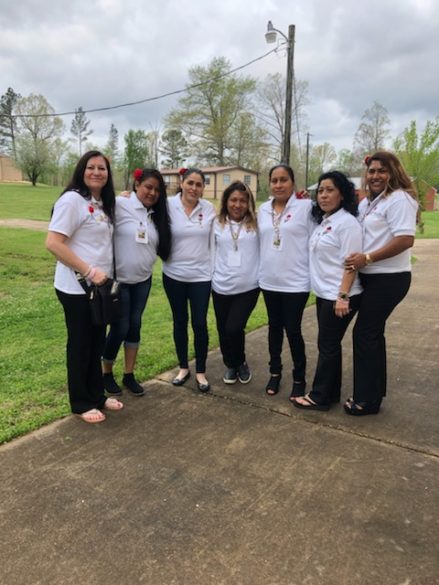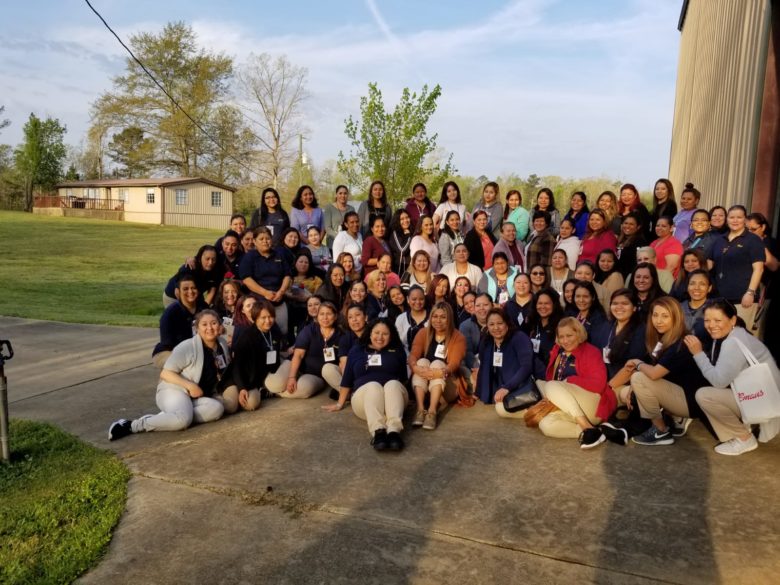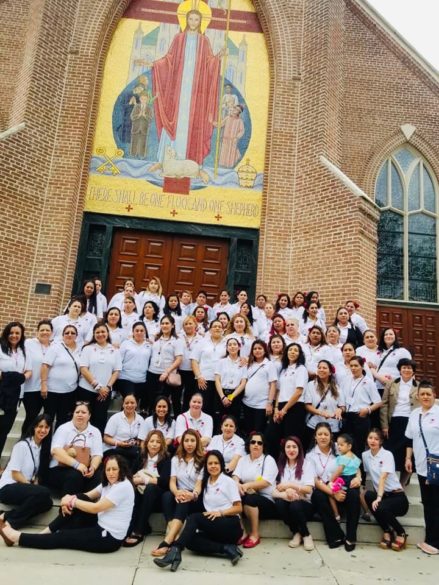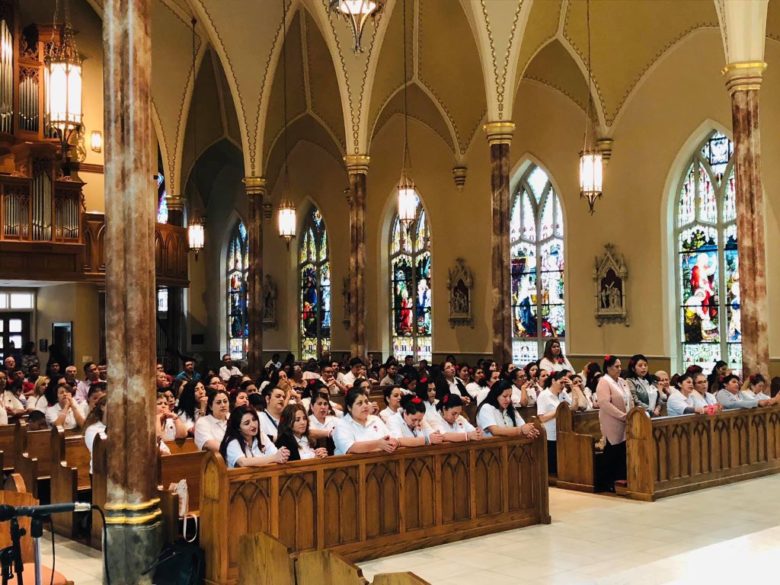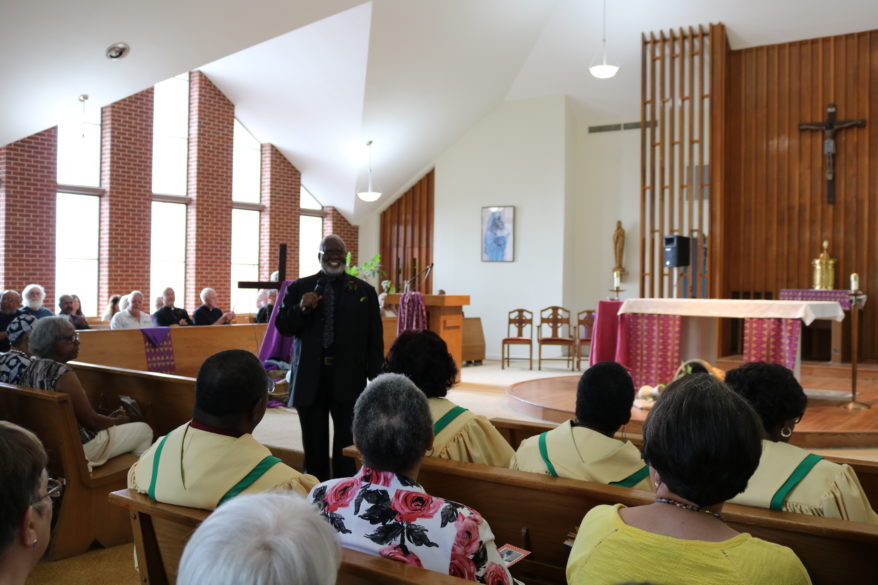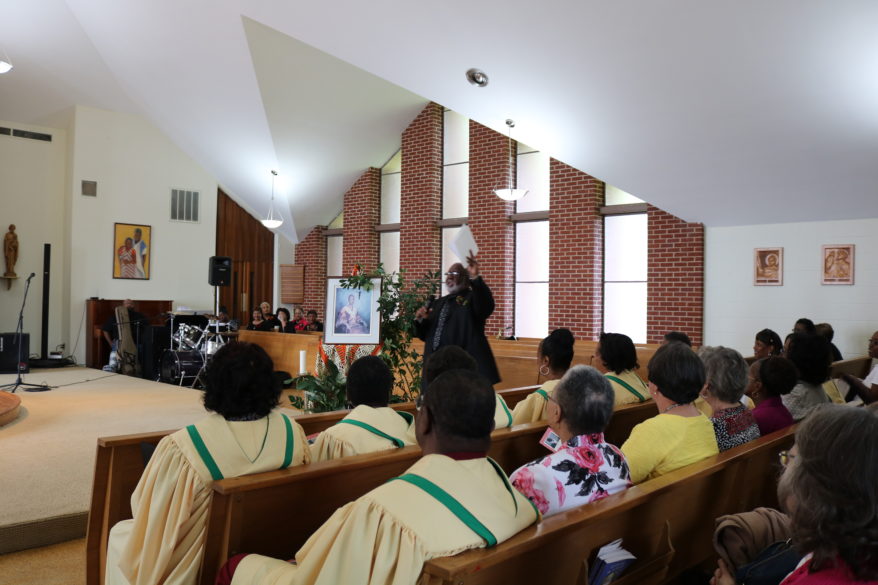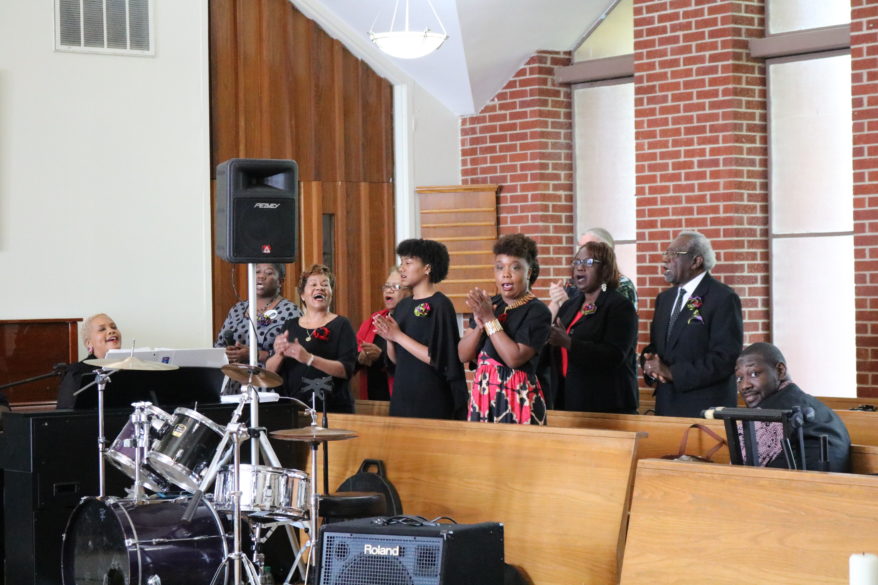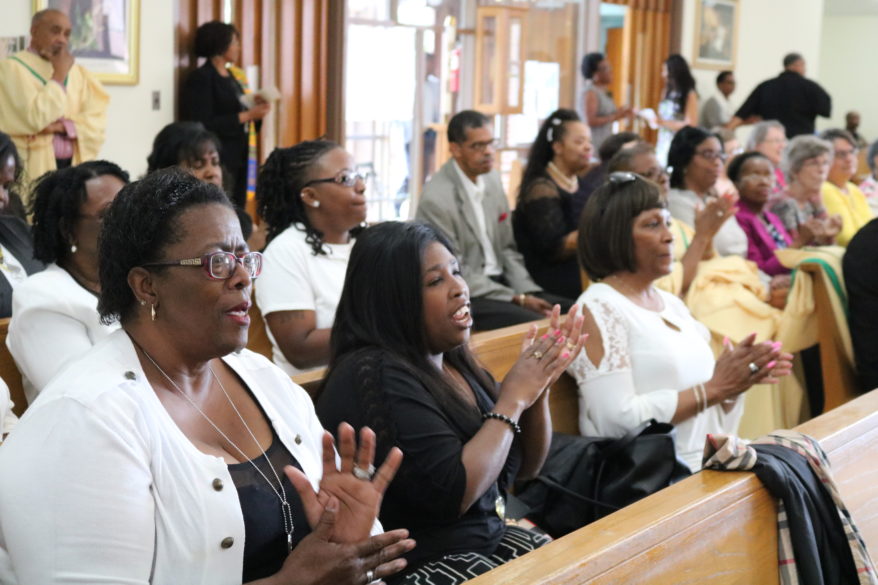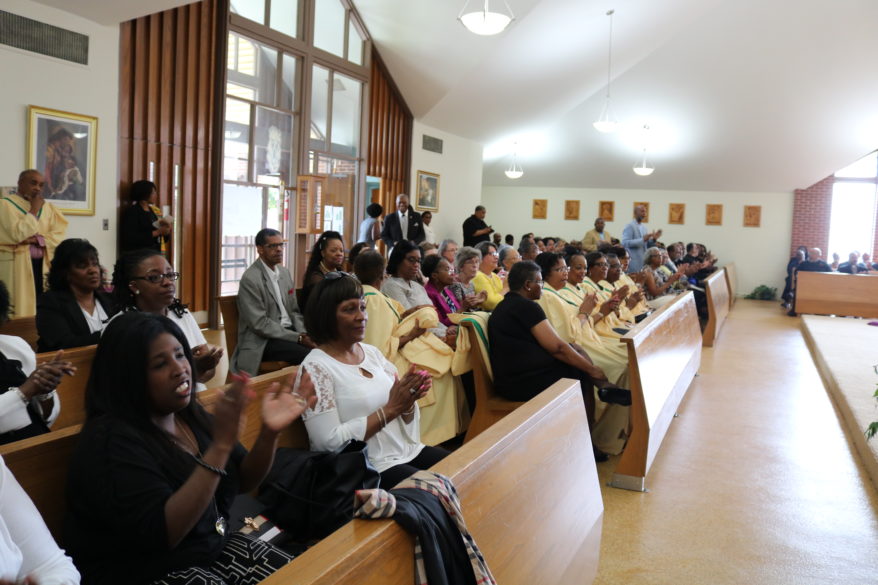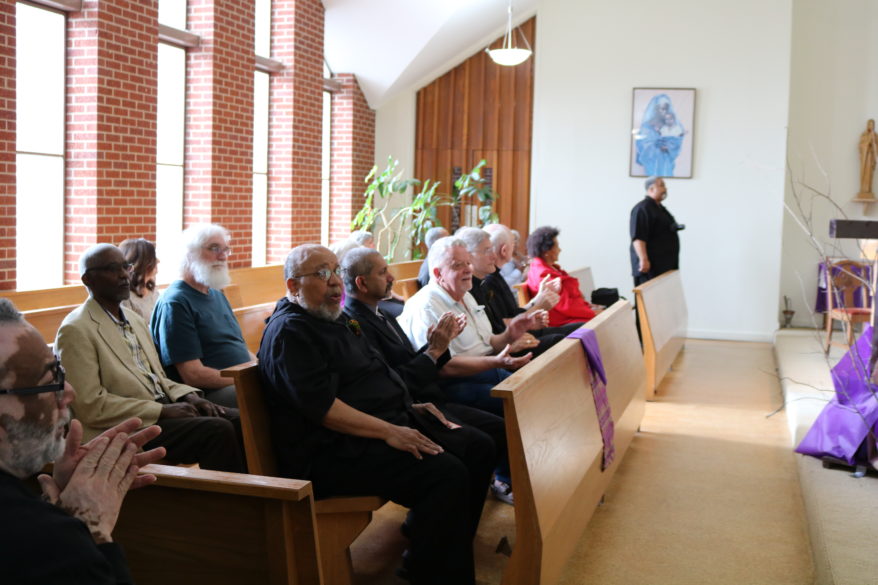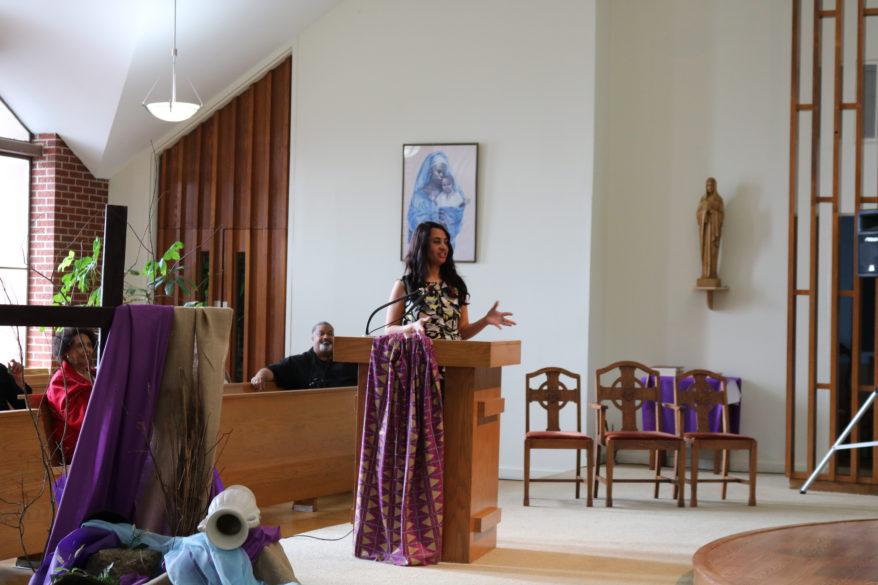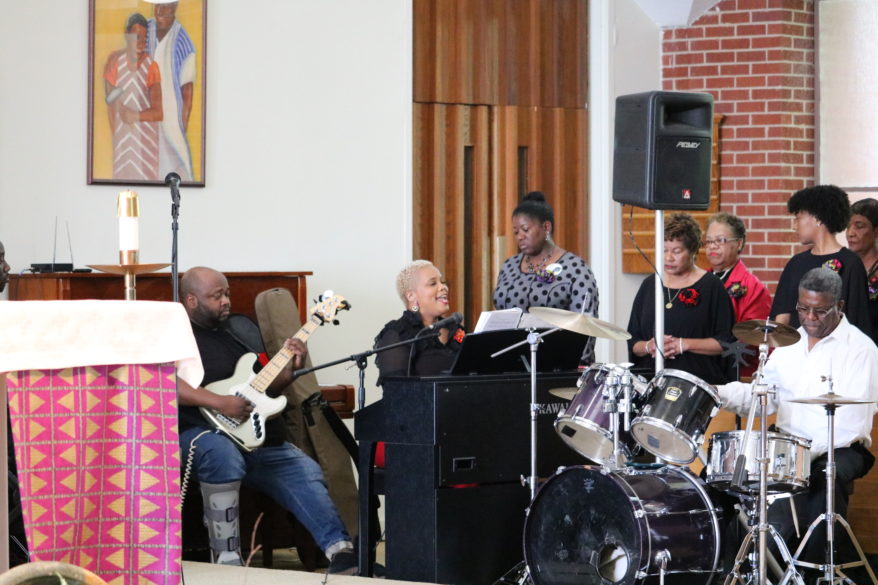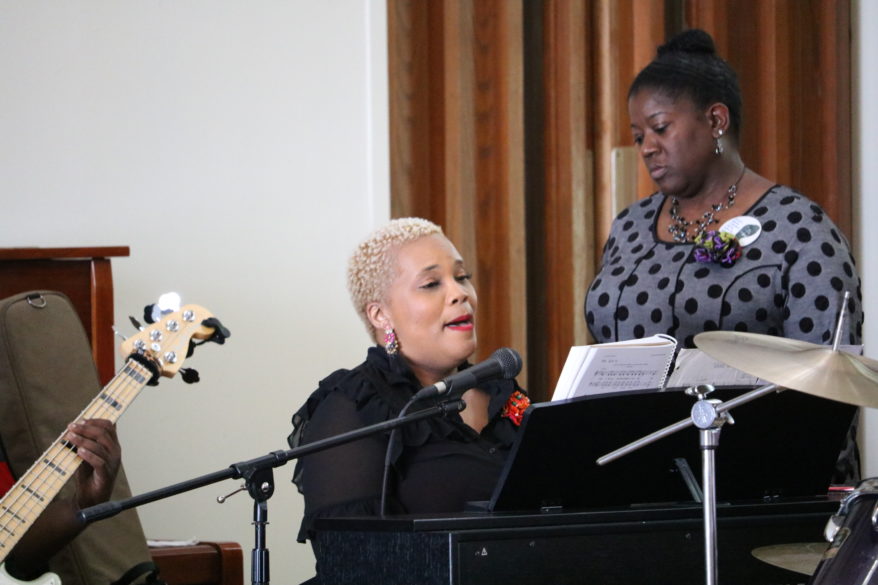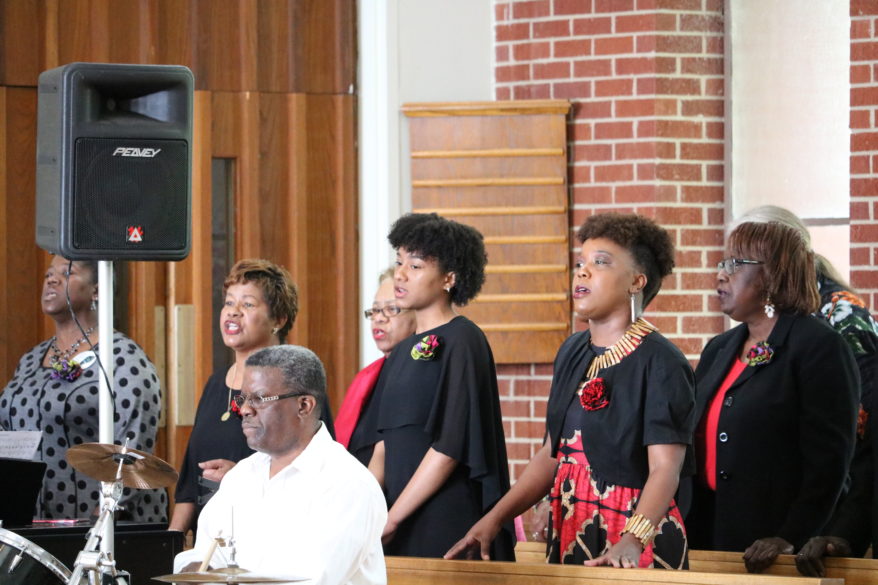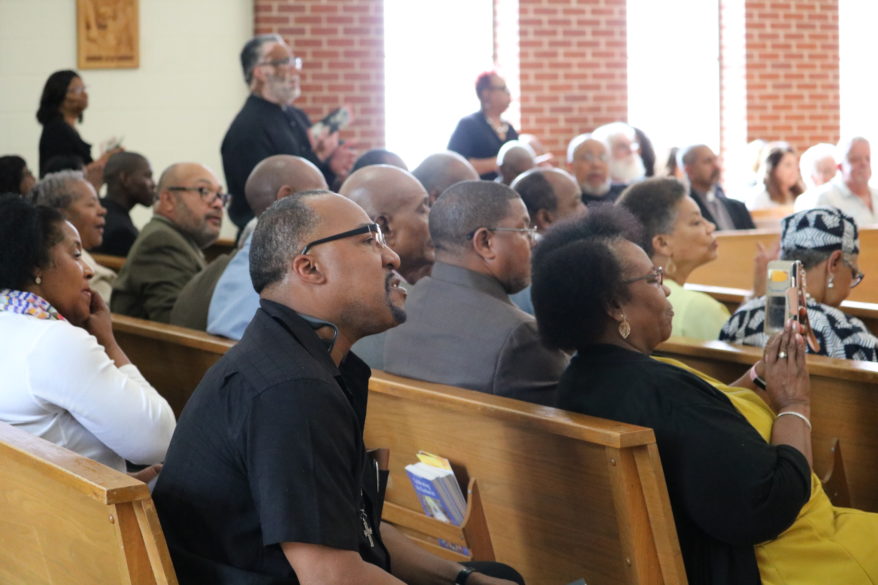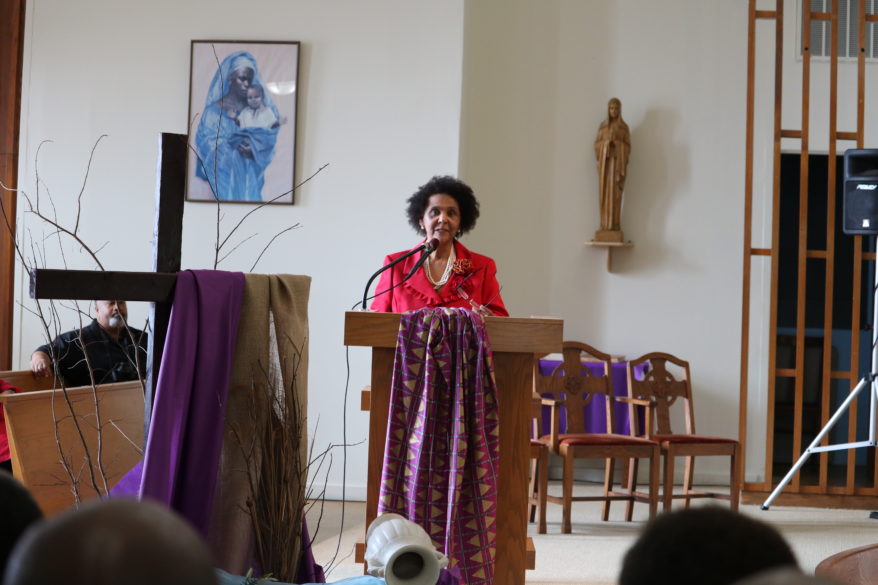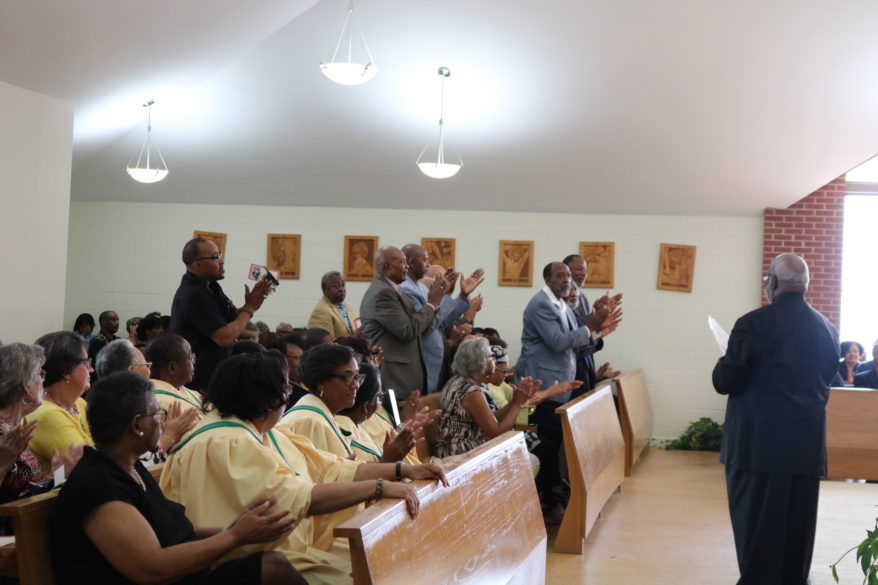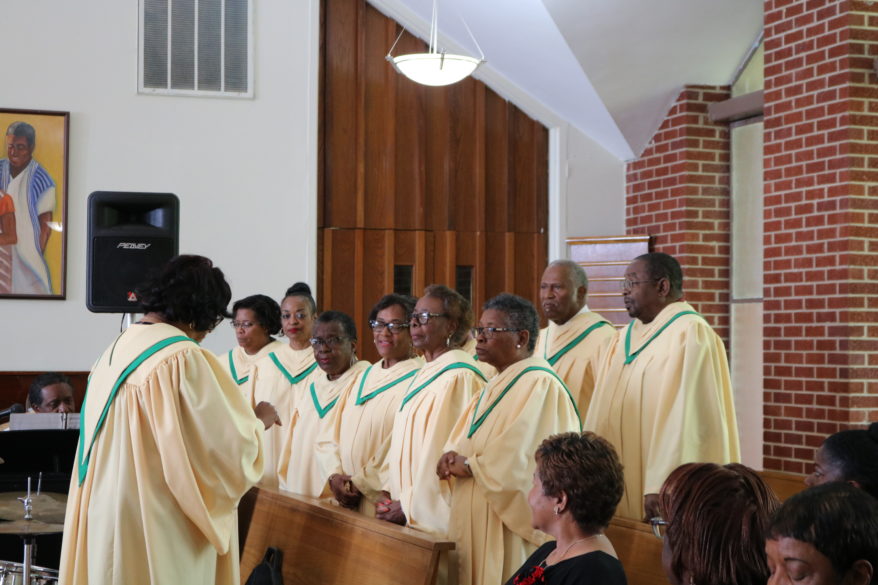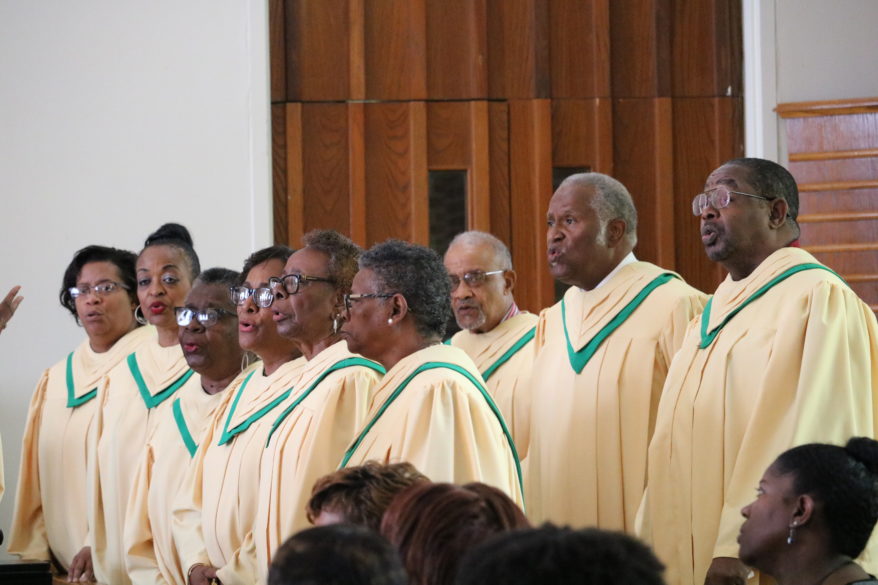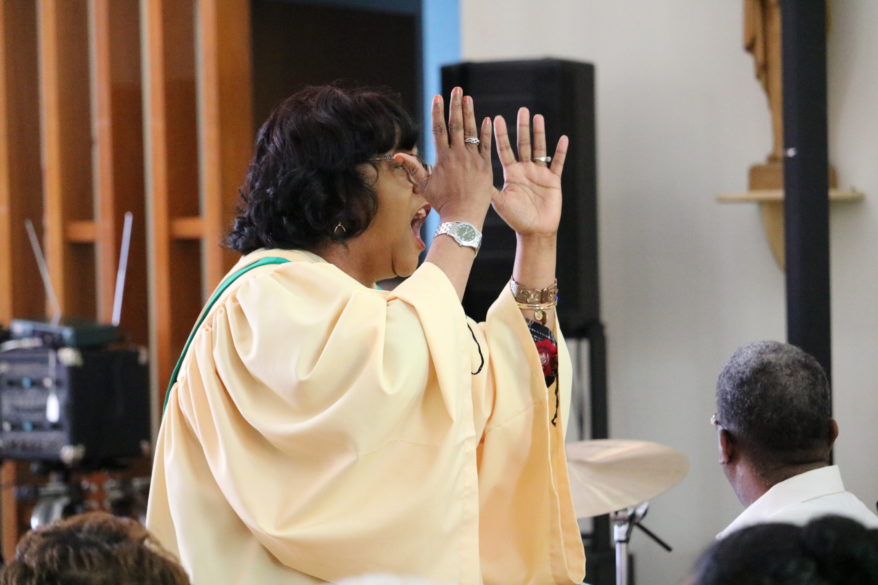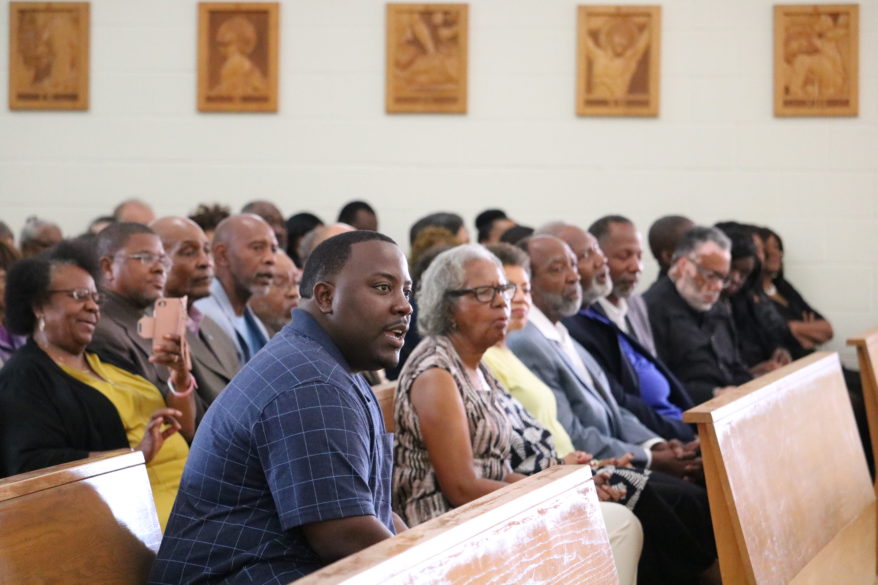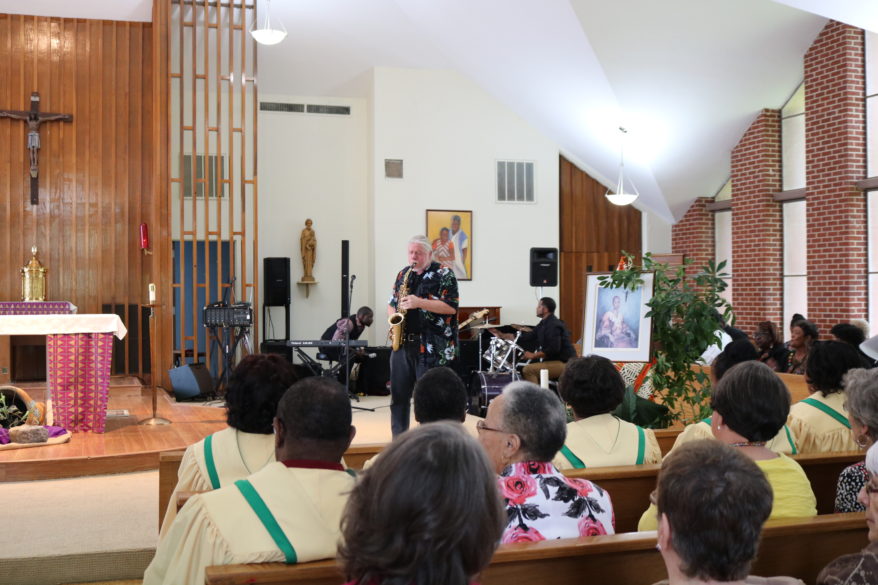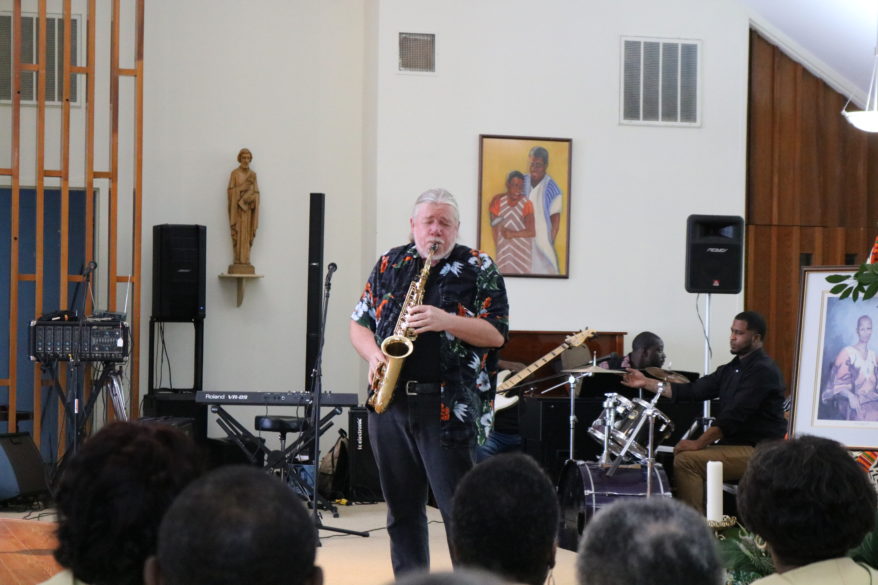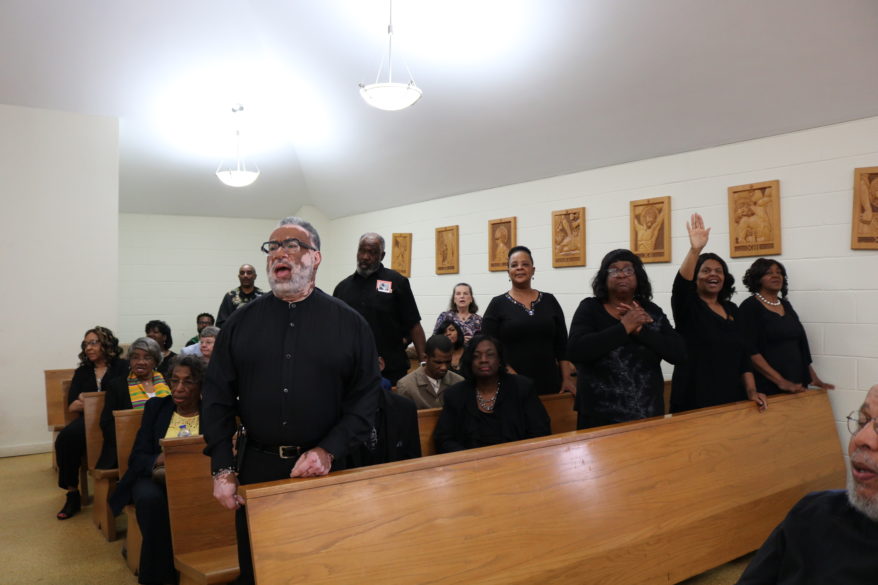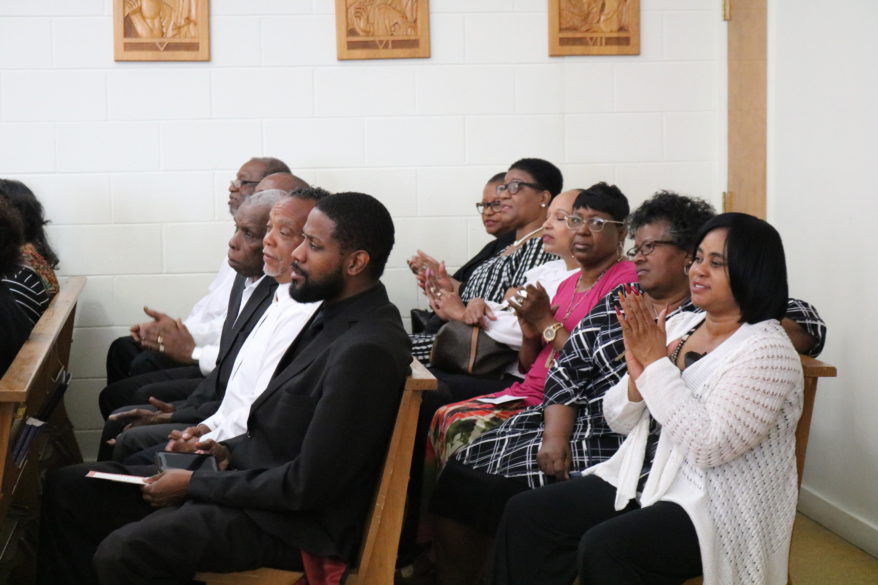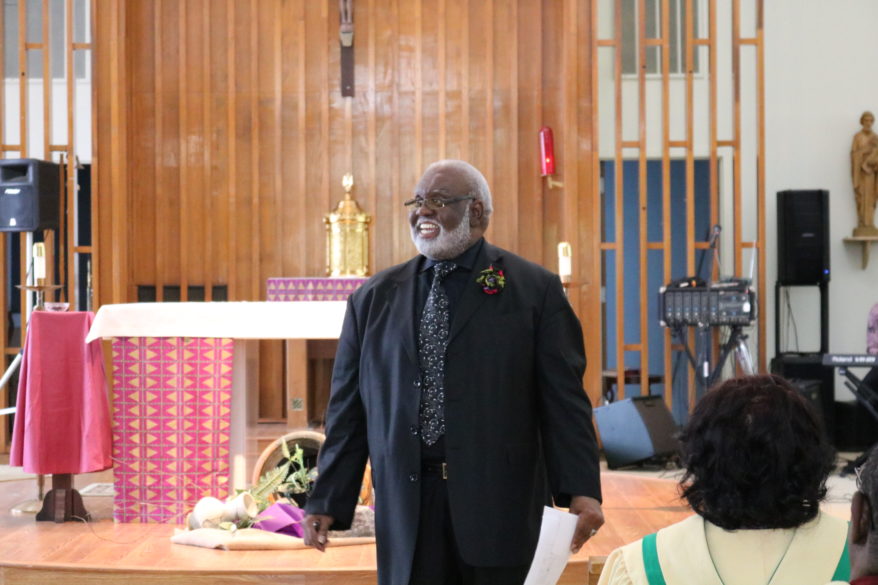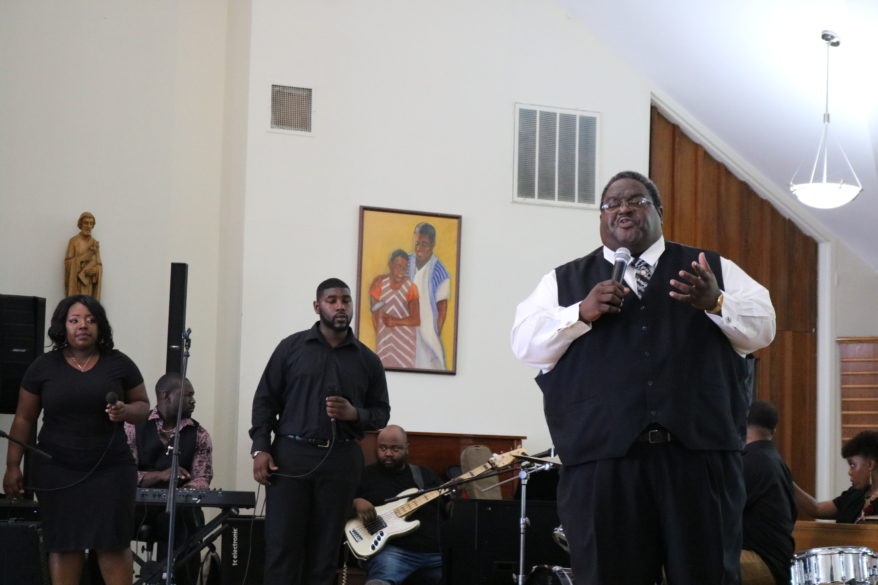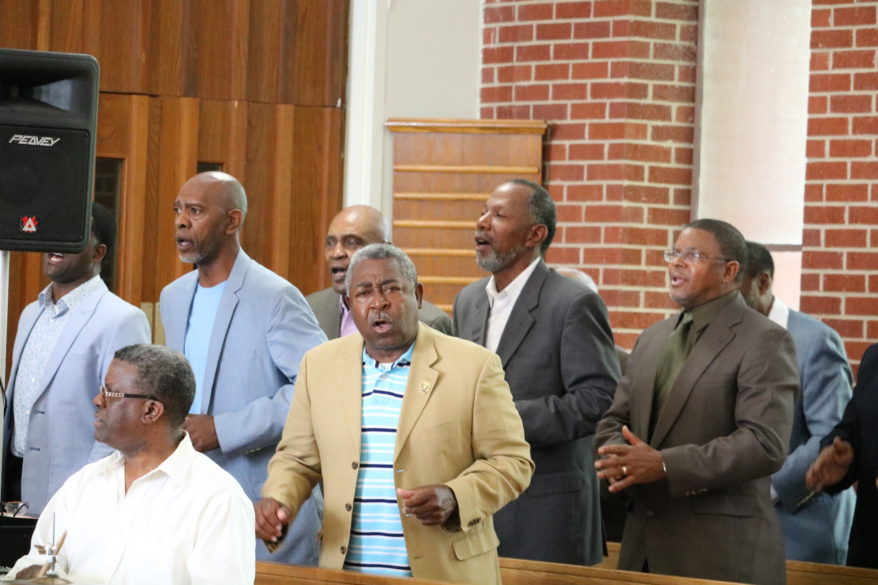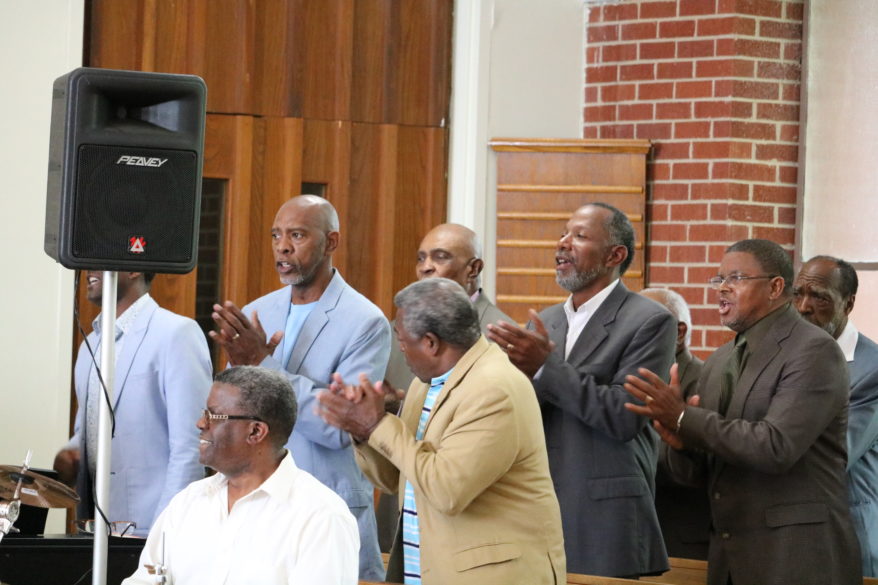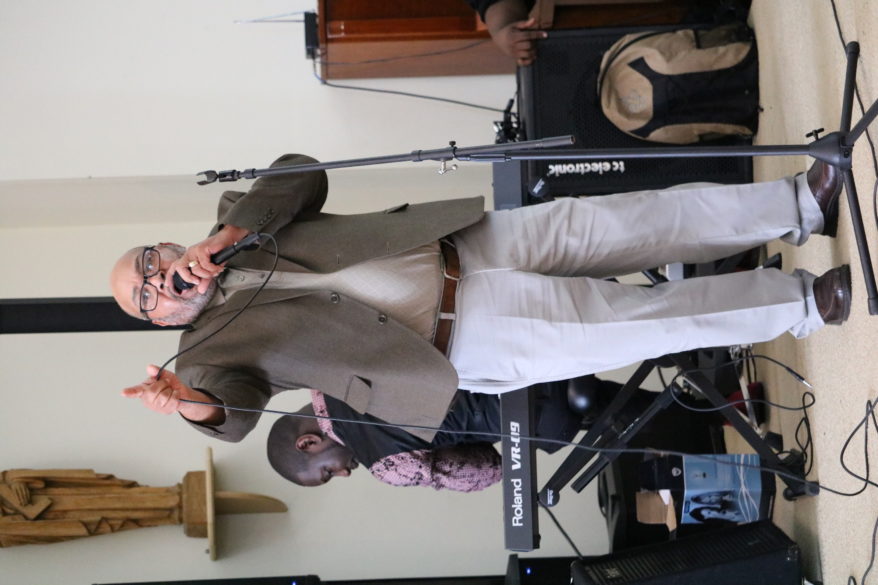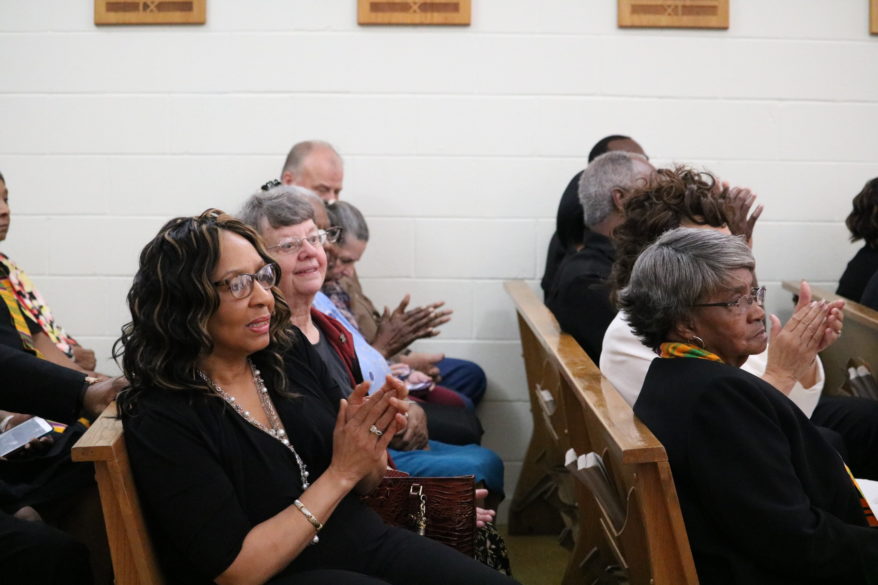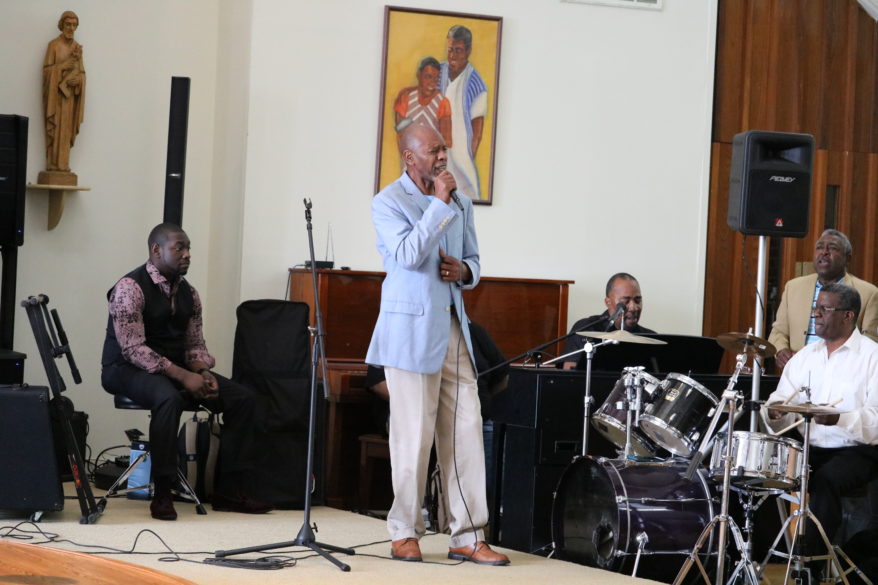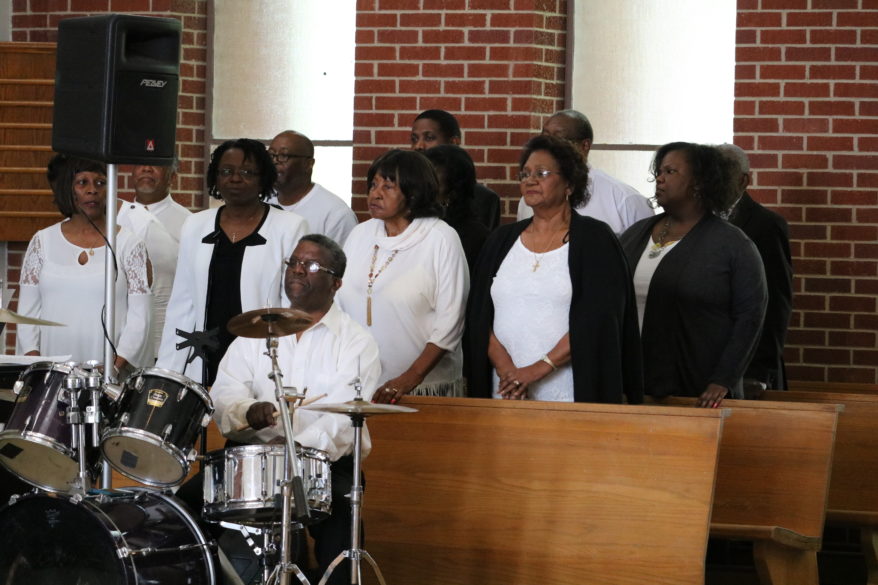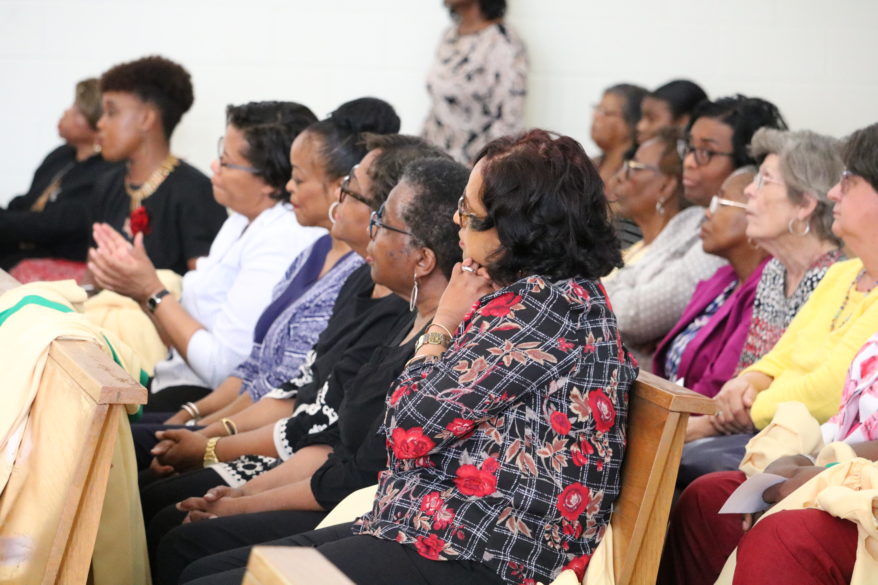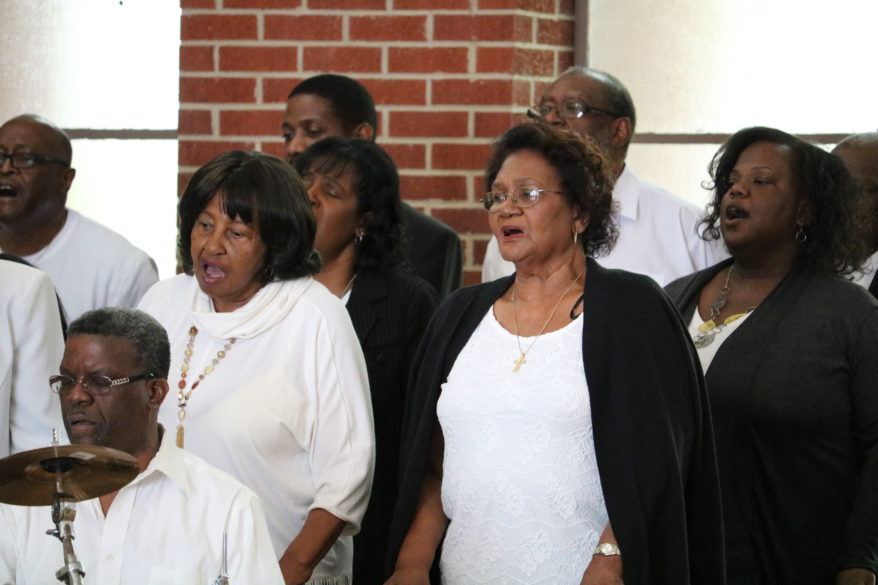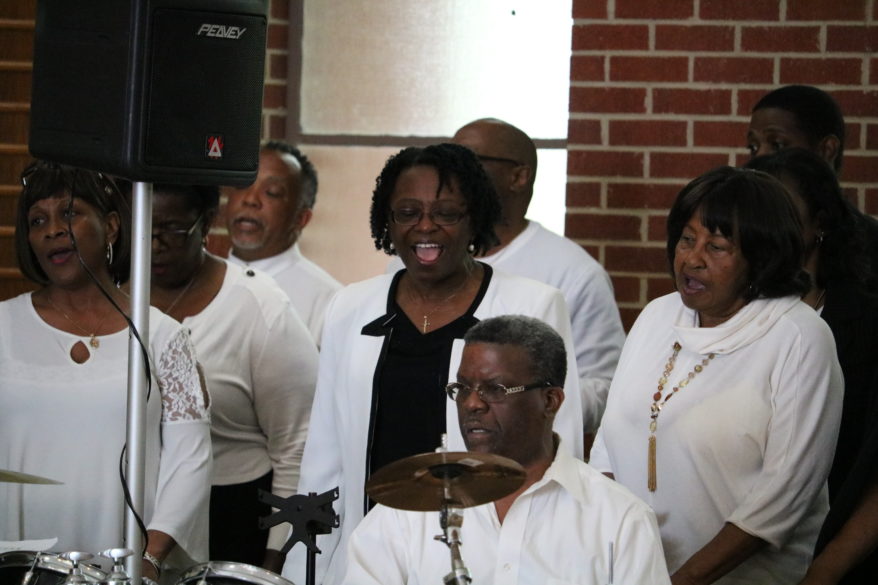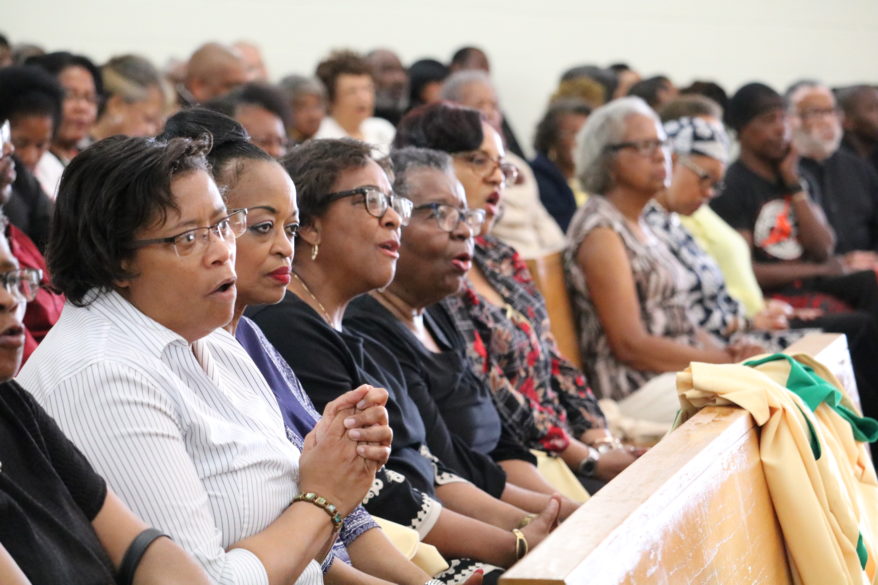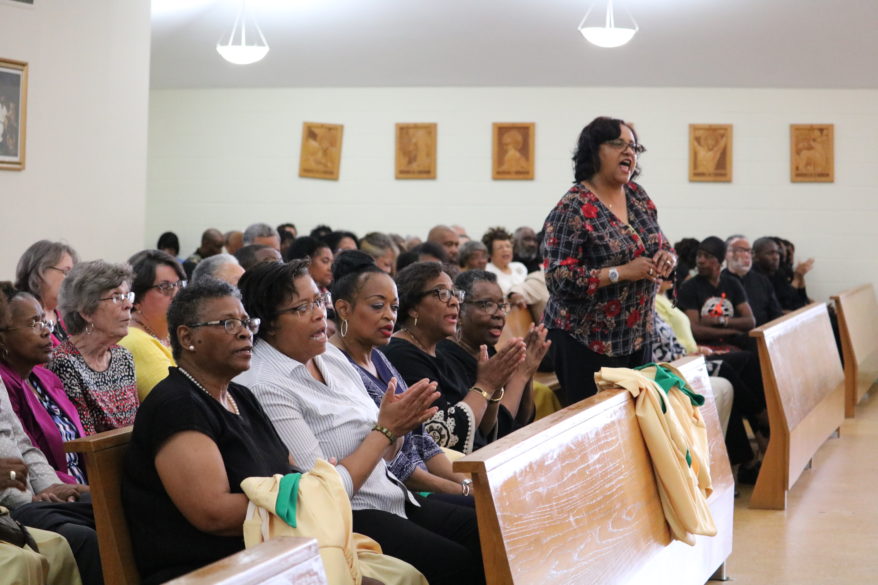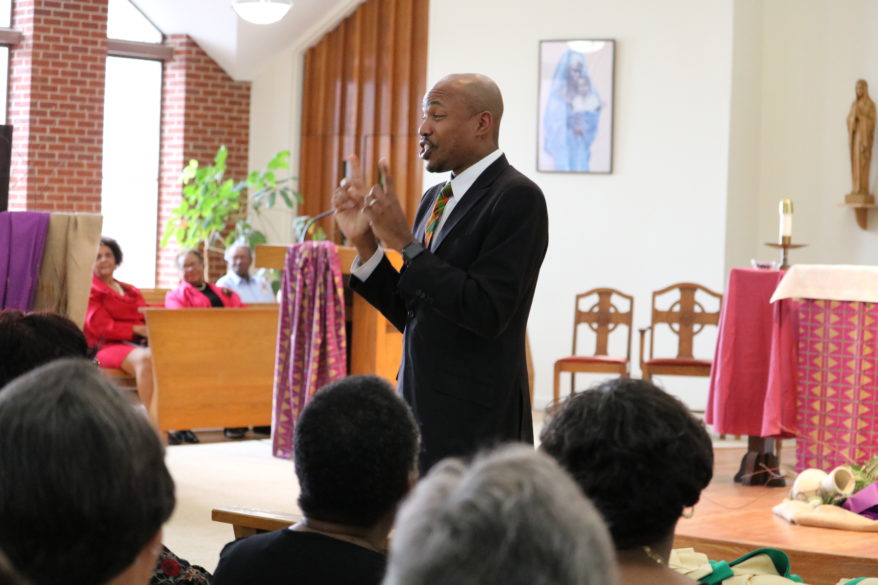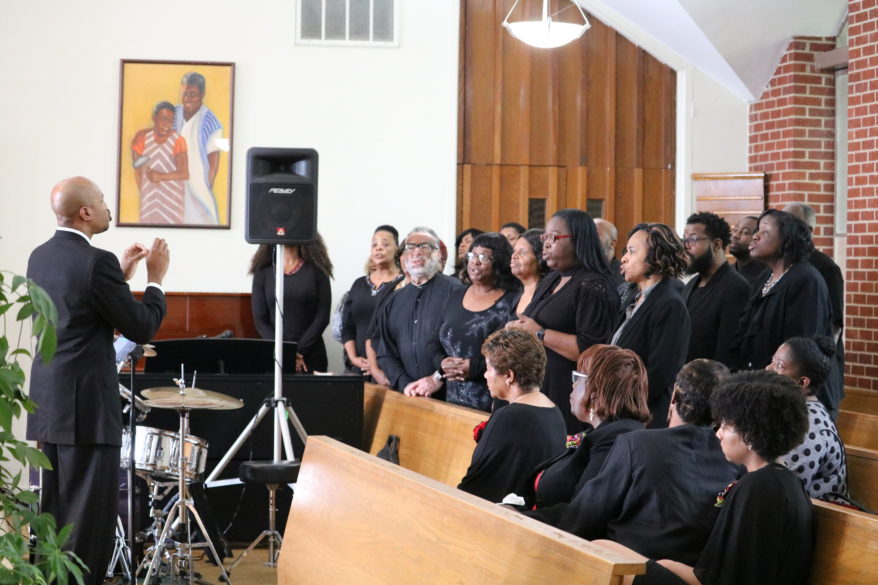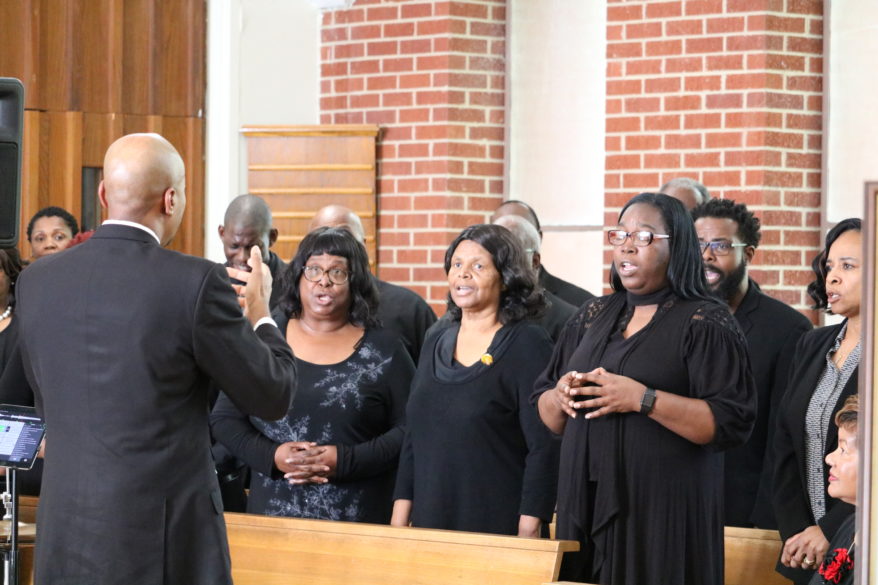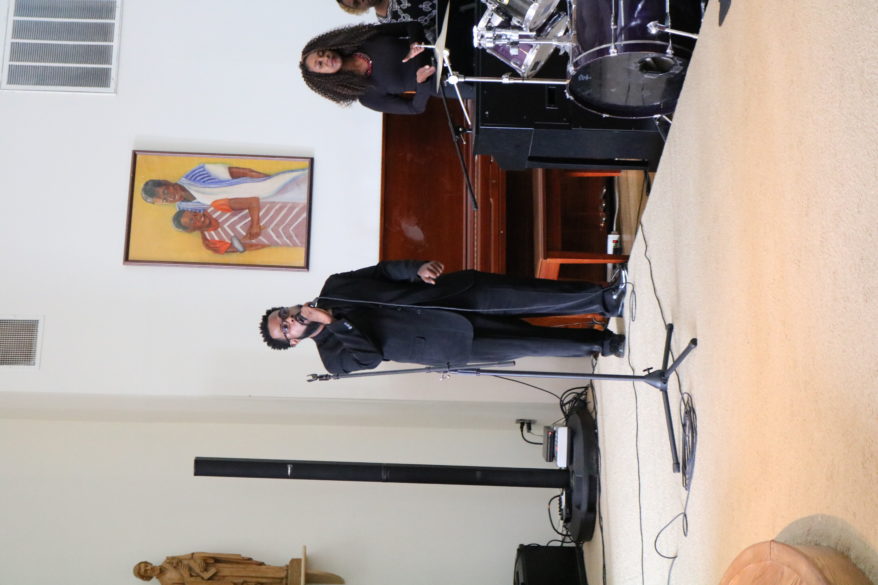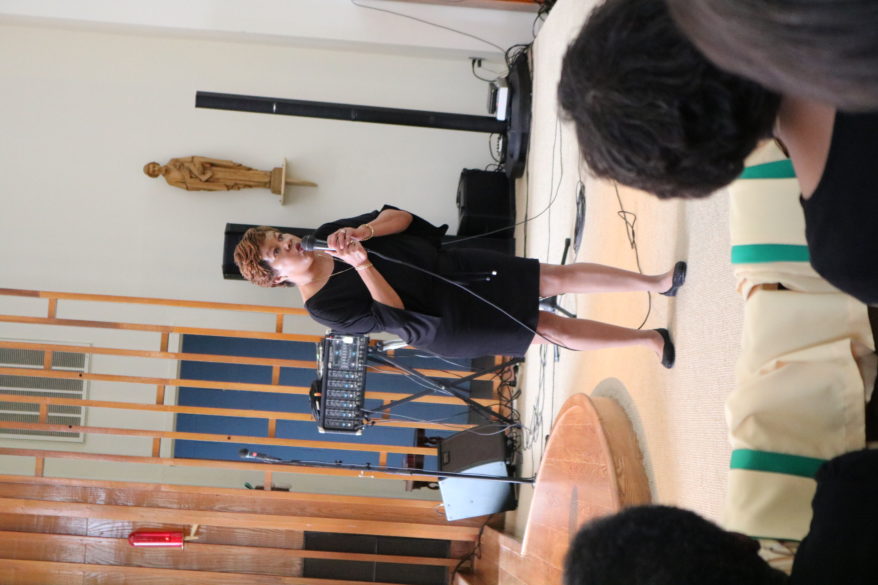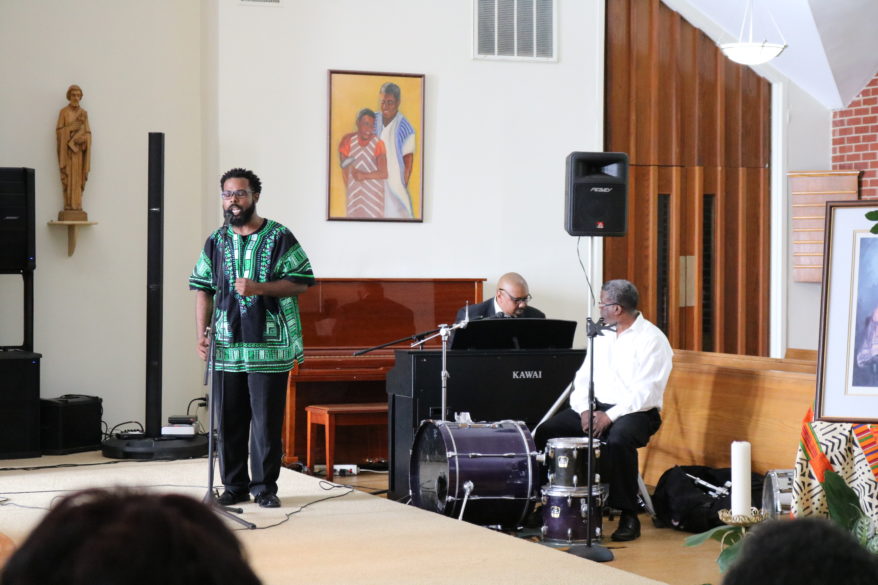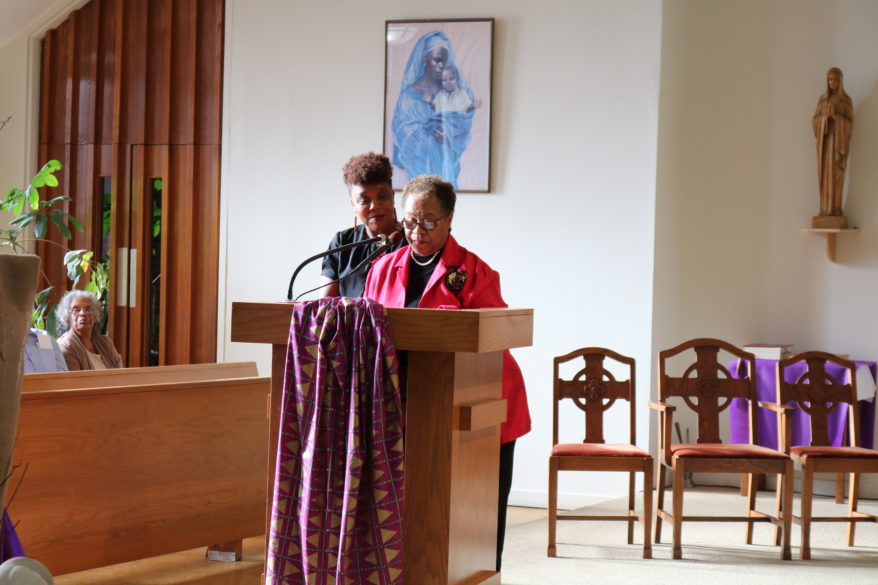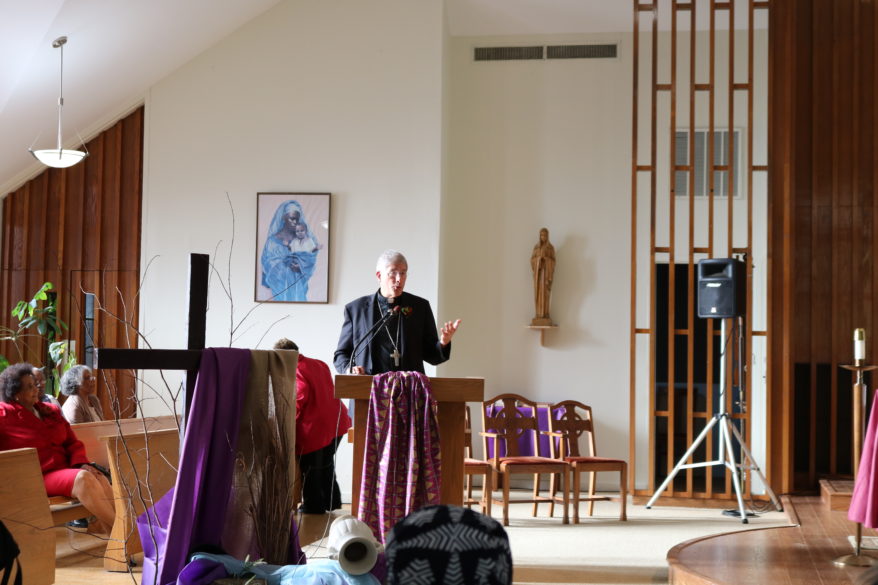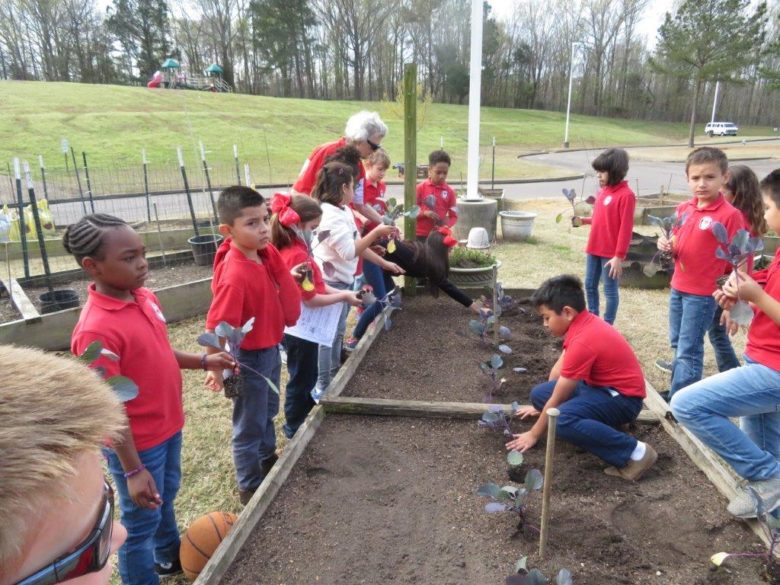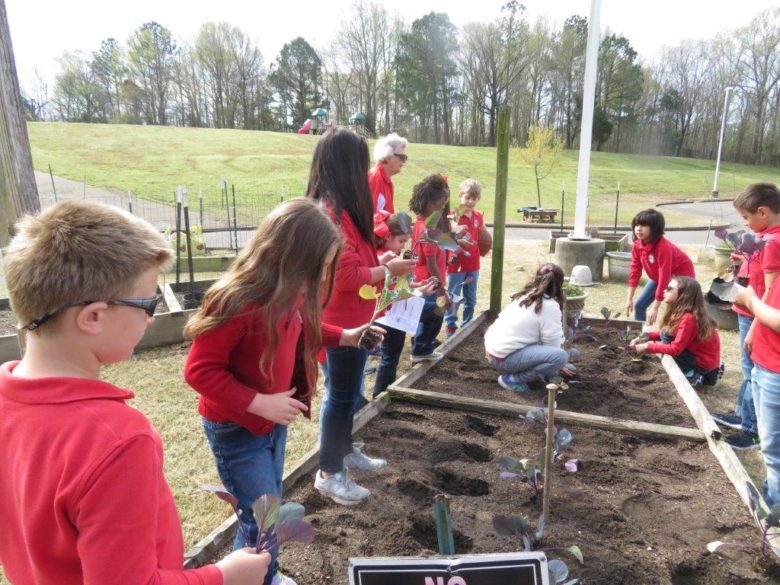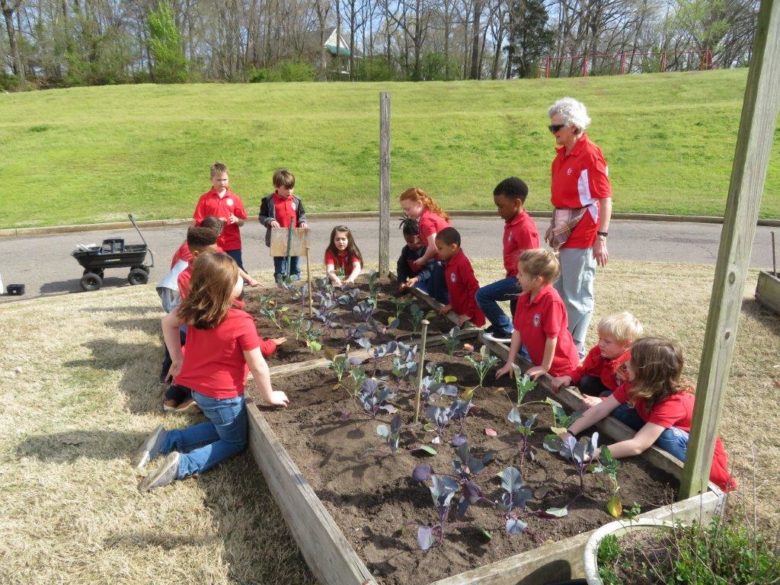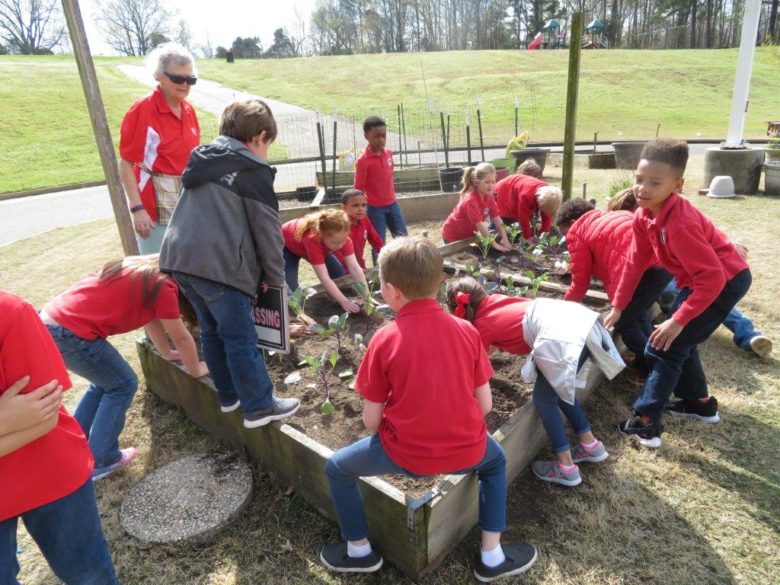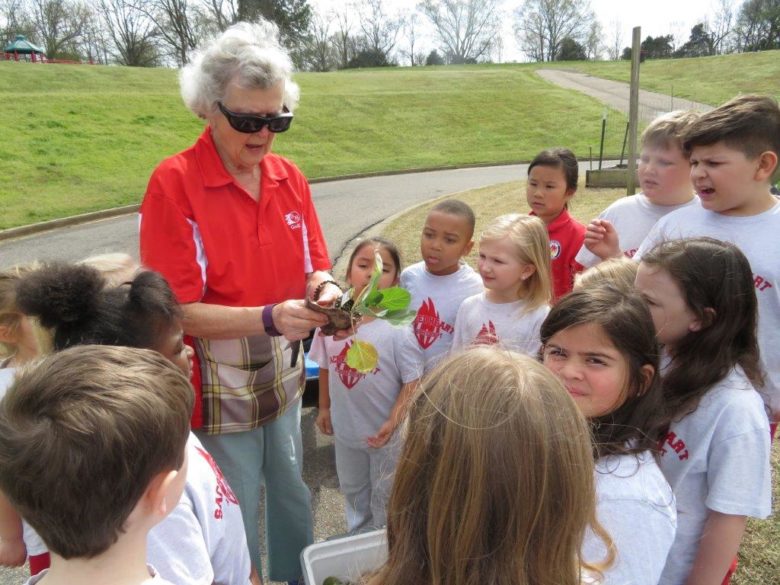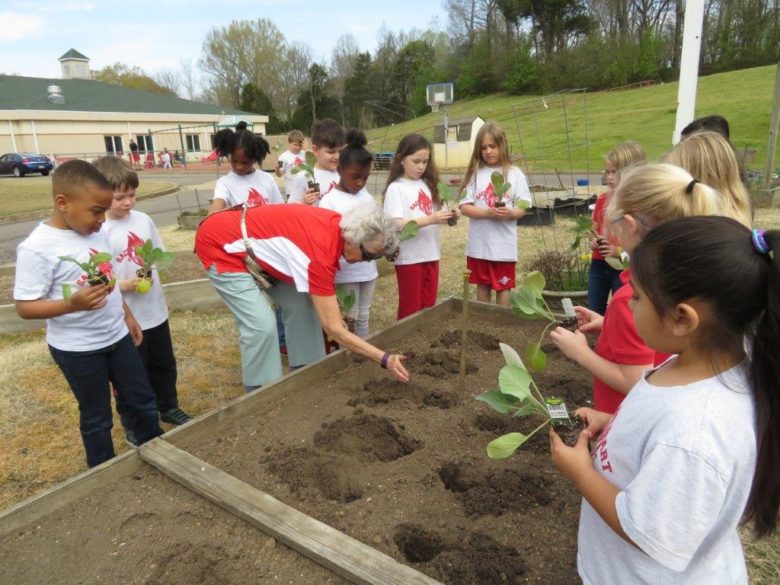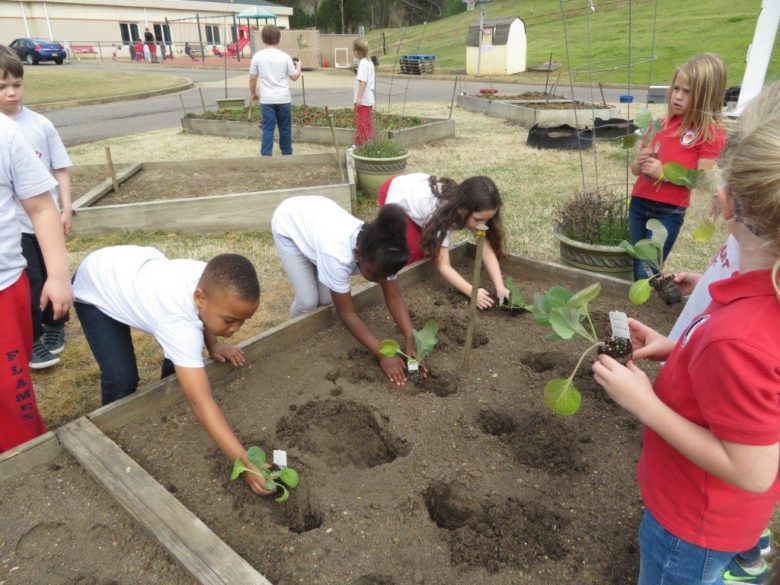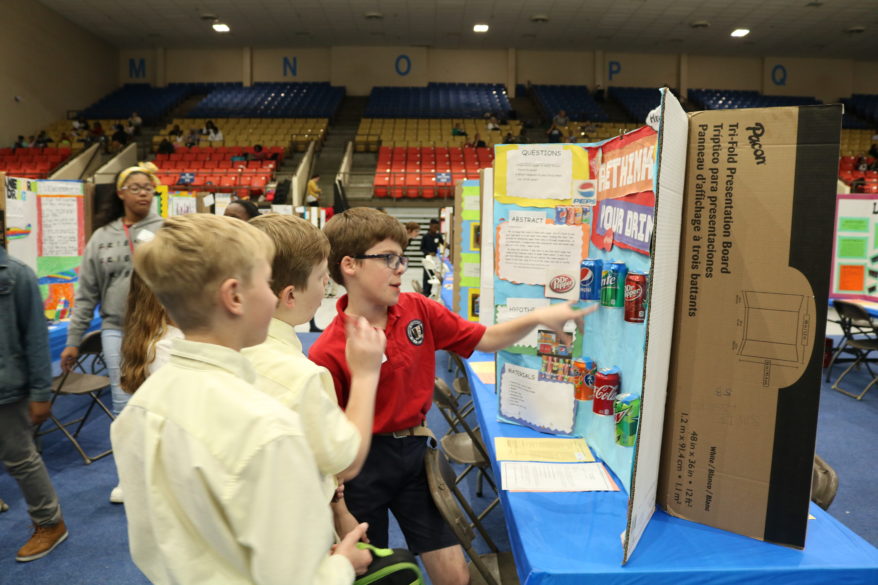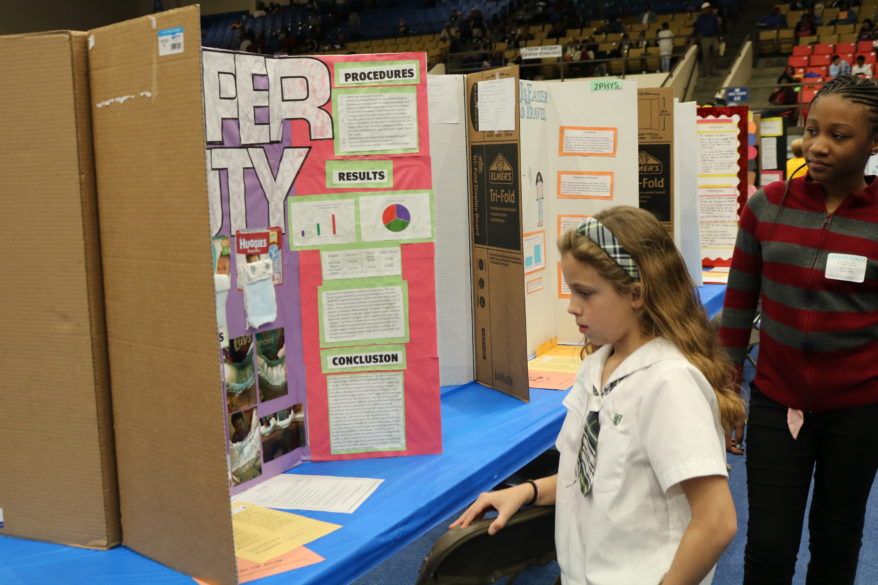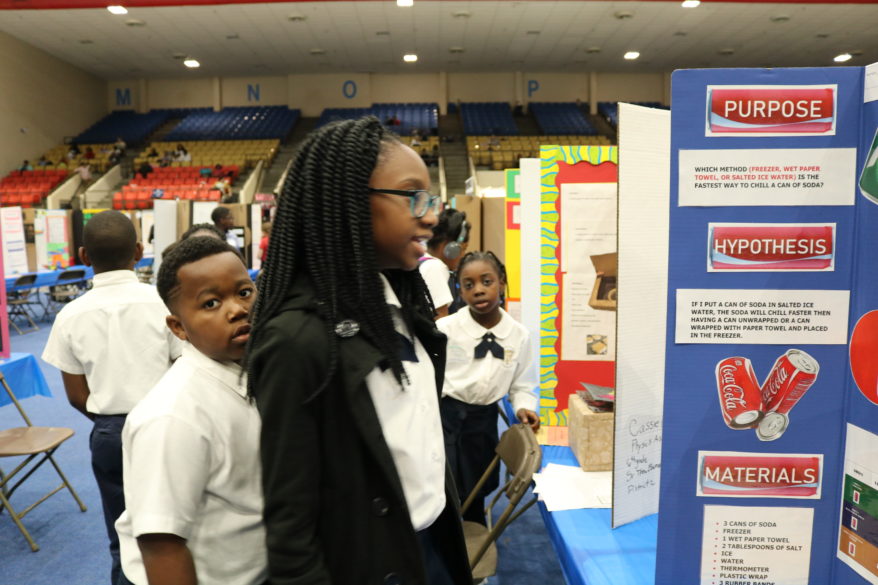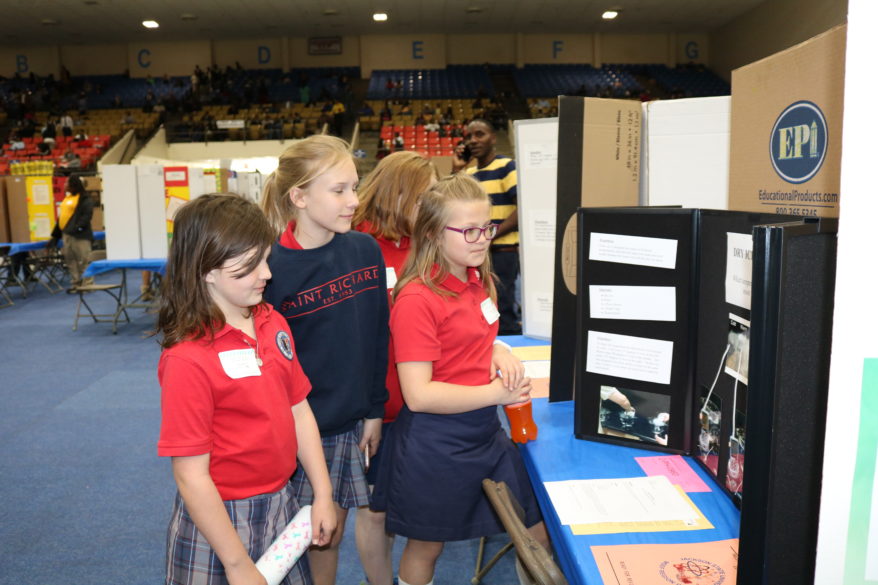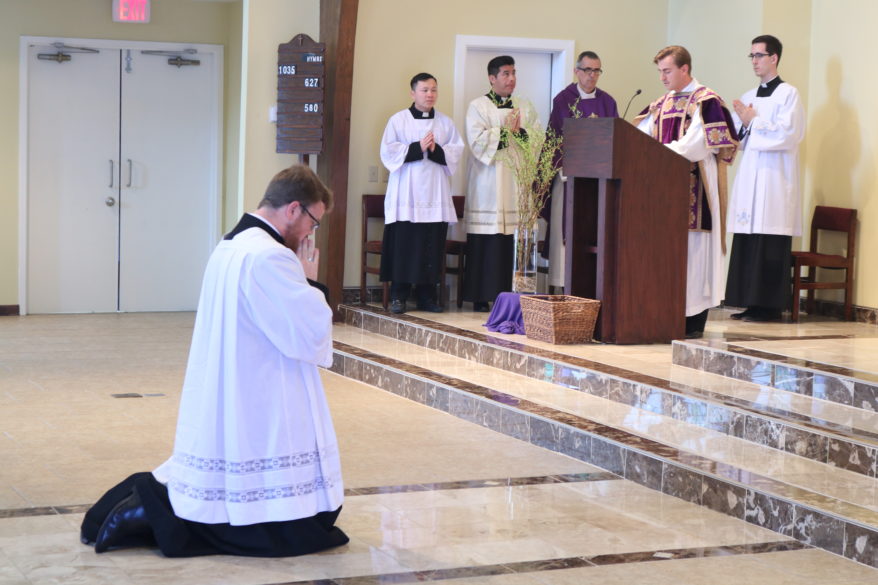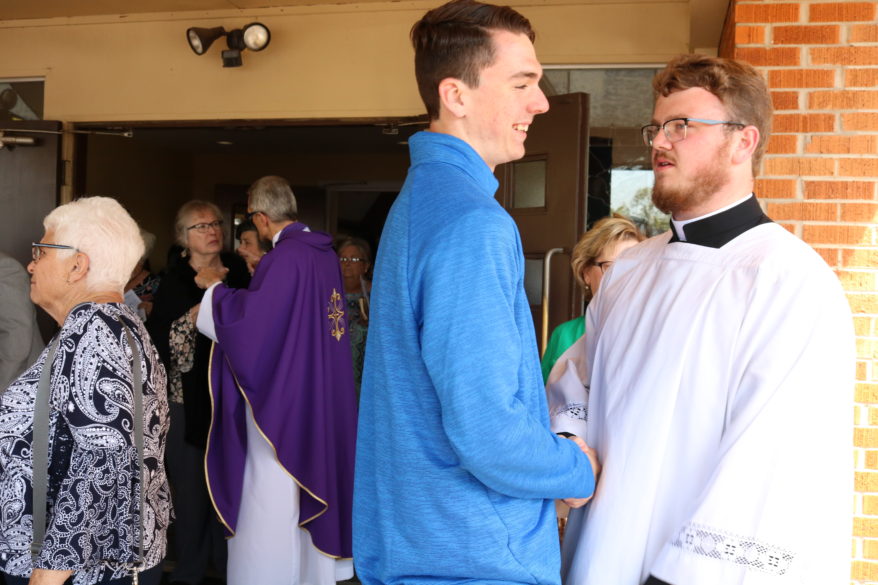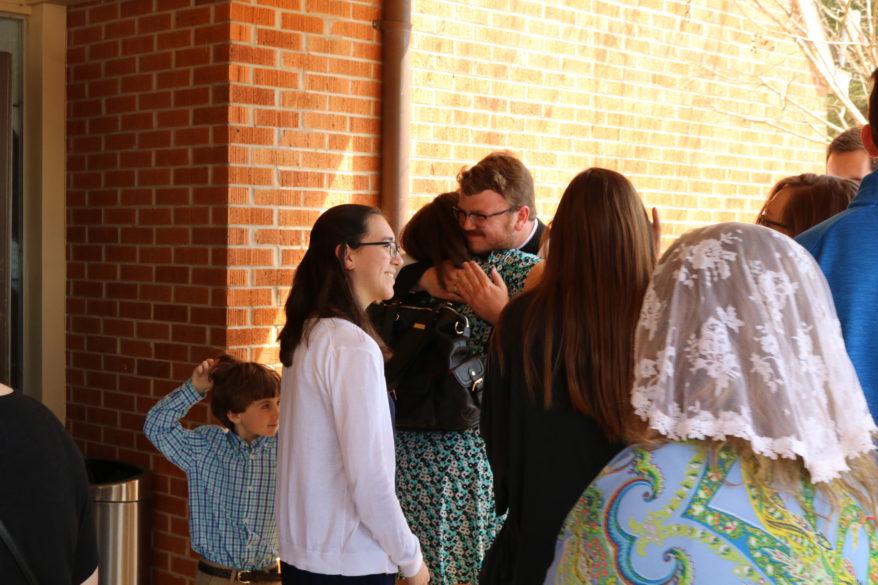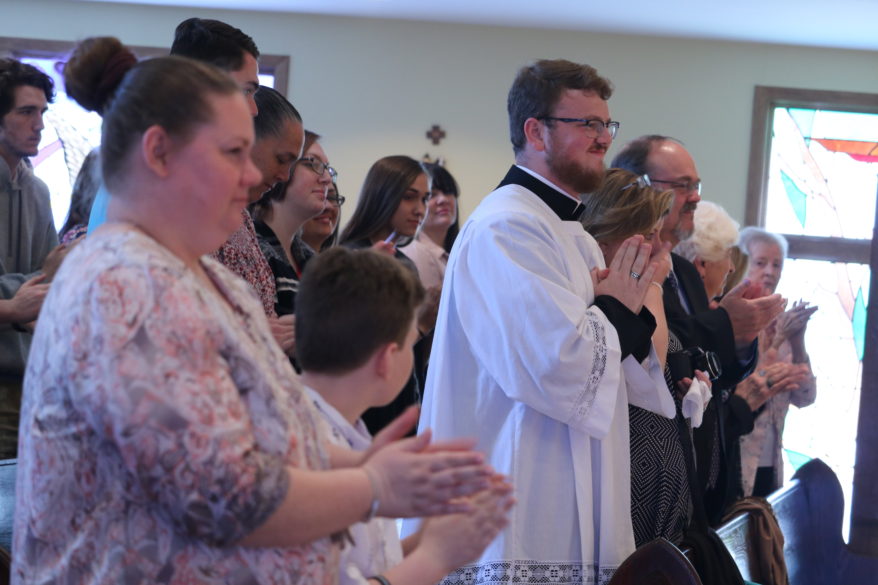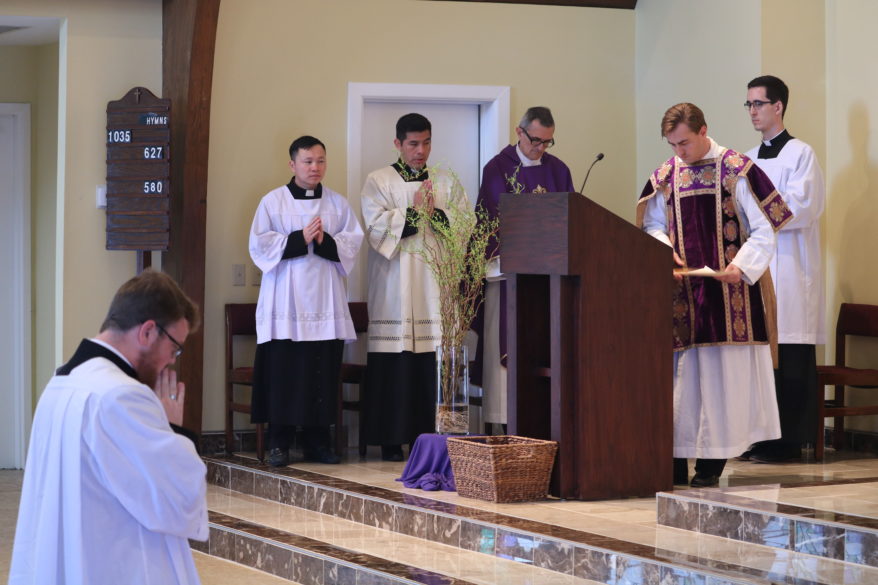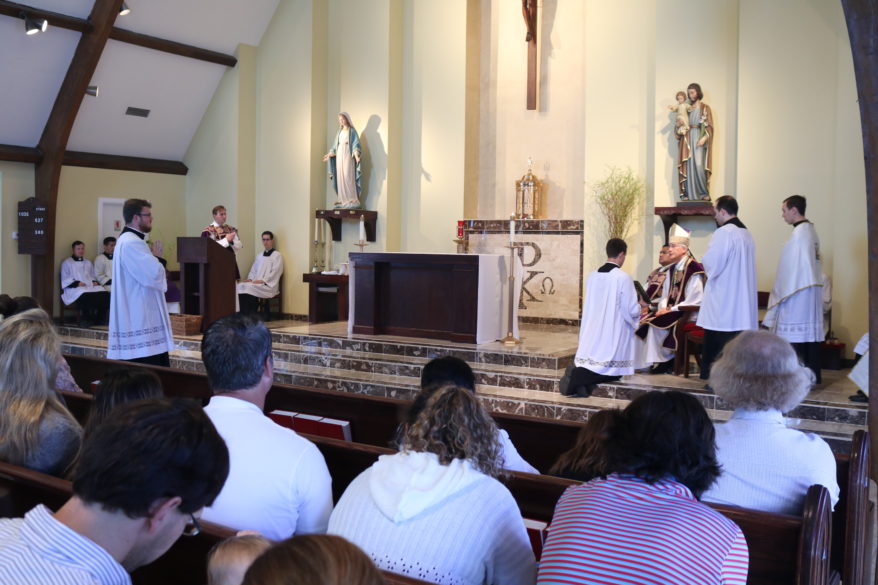By Berta Mexidor
JACKSON — An international retreat movement hosted its first Mississippi retreat April 5-7 at the Cathedral of St. Peter the Apostle. The Emmaus movement is based on the passage in Luke 24, 13-35 when the disciples walk with Christ to the town of Emmaus, but do not recognize him until he reveals himself at the table. This parish ministry was founded in Miami by Father David G. Russell, Mirna Gallagher and a group of women dedicated to religious education. Their model has spread to several Latin American countries, China and Europe, mainly in Spain.
Lorena Urizar, of St. Peter’s Cathedral and coordinator of the Emmaus Ministry in Mississippi, said she and other coordinators have been preparing for more than two years individually and as a group by attending retreats in Texas and Missouri.
Upon their return, they began to invite others to share their experience. Emmaus ministry brought a group of coordinators from Houston and, together with the local team, offered the first retreat for women. The next Emmaus retreat, in this case for men, will be held May 3 – 5, coordinated by Irvin López and Ricardo Ruiz
The participants – called walkers – included 37 women were accompanied by members of the coordinating teams whom conducted the retreat in Spanish. Overall, 84 people from Texas, Missouri and Mississippi were present
During a three days retreat, walkers are in a closed environment reflecting Luke 24, 13-35 through unique techniques “The women’s retreat was an experience of true ‘encounter with the Lord’, with themselves and with the community” said Urizar. “All the walkers let God touch their lives with a testimony, a song, a dynamic, a hug, a moment of prayer, an encounter with nature and with the details with which God manifested itself in each one,” she added. Each participant can share with others the joy of the days but not the techniques, to not spoil the future experience of new walkers.
The mission of the Emmaus group “is to introduce people to the ministry of Christ so that they may experience the love of God and be converted, but without removing them from their path, that is, without pretending that they do it ‘our way,’ but (listen to) what the Lord shows them …, without removing them from their ministry,” Urizar explained.
“From this personal experience, each one could say, ‘were not our hearts burning, within us, while he spoke to us on the way and opened the scriptures to us?’, like the disciples did walking to Emmaus,” Urizar concluded “we want others to live the experience of walking the path of Emmaus and meet the risen Lord.”
the experience of walking the path of Emmaus and meet the risen Lord.”
Updates
At Easter the stones of sin, despair, are rolled away, pope says at vigil
By Cindy Wooden
VATICAN CITY (CNS) – As individuals and as a church, it can be tempting to dwell on mistakes, failures and sins that block the fullness of life, but Easter is the proclamation that the Lord is victorious and his love will triumph, Pope Francis said.
“Easter is the feast of tombstones taken away, rocks rolled aside,” the pope said in his homily April 20 during the Easter Vigil.
The gaze of the risen Lord, he said, “fills us with hope for it tells us that we are loved unfailingly and that however much we make a mess of things, his love remains unchanged. This is the one, non-negotiable certitude we have in life: his love does not change.”
Pope Francis began the vigil in the atrium of St. Peter’s Basilica, blessing a fire and lighting the Easter candle. A deacon carried the candle into the semi-darkened basilica, lit the pope’s candle and began sharing the light with the thousands of people in the congregation. Little by little light filled the world’s largest Catholic church.
During the liturgy, Pope Francis baptized and confirmed eight adults, who were between the ages of 21 and 60. The five women and three men included four Italians and one person each from Ecuador, Peru, Albania and Indonesia.
In his homily, the pope focused on the Gospel scene of the women going to Jesus’ tomb to anoint his dead body. Pope Francis imagined that the women were worried about how they would remove the stone sealing the tomb and said that in an analogous way it is a worry the entire Christian community can experience.
“At times,” he said, “it seems that everything comes up against a stone: the beauty of creation against the tragedy of sin; liberation from slavery against infidelity to the covenant; the promises of the prophets against the listless indifference of the people.”
“In the history of the church and in our own personal history,” he said, it may seem that “the steps we take never take us to the goal. We can be tempted to think that dashed hope is the bleak law of life.”
But, he said, “God takes away even the hardest stones against which our hopes and expectations crash: death, sin, fear, worldliness.”
The church is built on the risen Jesus, the living stone, he said, “and even when we grow disheartened and tempted to judge everything in the light of our failures, he comes to make all things new, to overturn our every disappointment.”
When the women entered Jesus’ tomb, they were met by two angels who asked them, “Why do you seek the living one among the dead?”
Pope Francis said many times Christians keep focused on the dead by giving in to resignation and failure, burying hope and becoming “cynical, negative and despondent.”
The “stone of sin” also seals human hearts, he said. “Sin seduces; it promises things easy and quick, prosperity and success, but then leaves behind only solitude and death. Sin is looking for life among the dead, for the meaning of life in things that pass away.”
“Why not make up your mind to abandon that sin which, like a stone before the entrance to your heart, keeps God’s light from entering in?” the pope asked people at Mass. “Why not tell the empty things of this world that you no longer live for them, but for the Lord of life?”
Easter joy comes when people learn to view their lives as God does, “for in each of us he never ceases to see an irrepressible kernel of beauty,” Pope Francis said. “In sin, he sees sons and daughters to be restored; in death, brothers and sisters to be reborn; in desolation, hearts to be revived.”
“Jesus is a specialist at turning our deaths into life, our mourning into dancing,” he said. With Jesus, each person can experience a “Passover from self-centeredness to communion, from desolation to consolation, from fear to confidence. Let us not keep our faces bowed to the ground in fear but raise our eyes to the risen Jesus.”
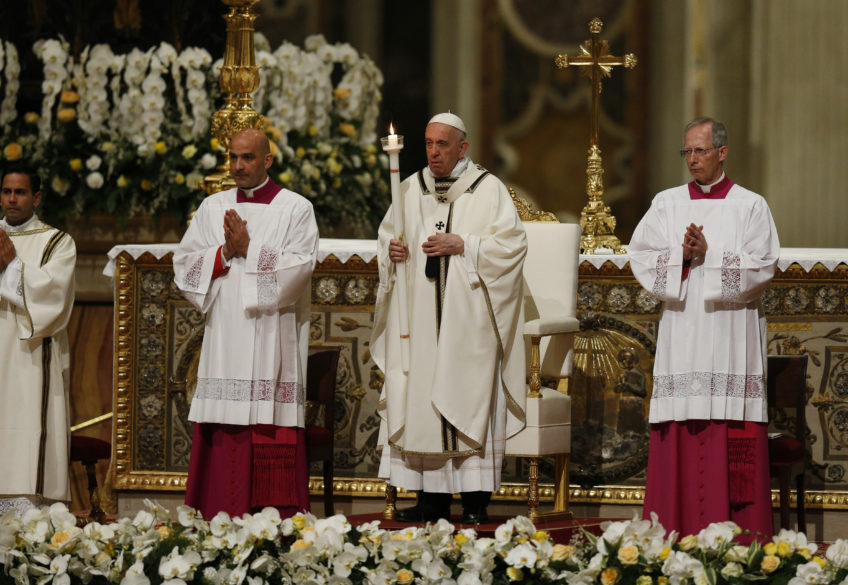
“At times,” he said, “it seems that everything comes up against a stone: the beauty of creation against the tragedy of sin; liberation from slavery against infidelity to the covenant; the promises of the prophets against the listless indifference of the people.”
“In the history of the church and in our own personal history,” he said, it may seem that “the steps we take never take us to the goal. We can be tempted to think that dashed hope is the bleak law of life.”
But, he said, “God takes away even the hardest stones against which our hopes and expectations crash: death, sin, fear, worldliness.”
The church is built on the risen Jesus, the living stone, he said, “and even when we grow disheartened and tempted to judge everything in the light of our failures, he comes to make all things new, to overturn our every disappointment.”
When the women entered Jesus’ tomb, they were met by two angels who asked them, “Why do you seek the living one among the dead?”
Pope Francis said many times Christians keep focused on the dead by giving in to resignation and failure, burying hope and becoming “cynical, negative and despondent.”
The “stone of sin” also seals human hearts, he said. “Sin seduces; it promises things easy and quick, prosperity and success, but then leaves behind only solitude and death. Sin is looking for life among the dead, for the meaning of life in things that pass away.”
“Why not make up your mind to abandon that sin which, like a stone before the entrance to your heart, keeps God’s light from entering in?” the pope asked people at Mass. “Why not tell the empty things of this world that you no longer live for them, but for the Lord of life?”
Easter joy comes when people learn to view their lives as God does, “for in each of us he never ceases to see an irrepressible kernel of beauty,” Pope Francis said. “In sin, he sees sons and daughters to be restored; in death, brothers and sisters to be reborn; in desolation, hearts to be revived.”
“Jesus is a specialist at turning our deaths into life, our mourning into dancing,” he said. With Jesus, each person can experience a “Passover from self-centeredness to communion, from desolation to consolation, from fear to confidence. Let us not keep our faces bowed to the ground in fear but raise our eyes to the risen Jesus.”
Songs and praise for Sister Thea Bowman
CANTON – Gospel choirs from many churches gathered at Holy Child Jesus Parish on Saturday, March 30 for a musical celebration in honor of Sister Thea Bowman. Sister Thea died on March 30, 1990. Last year the Diocese of Jackson opened a cause for sainthood for the Mississippi native, who became Catholic and later served as a teacher at Holy Child.
Choirs included the Mary Grove Baptist Church men’s choir, Jackson Christ the King and Holy Ghost choirs, the Frazier Riddel Choir, the Jackson Family, Ed Hightower, Landris Jones and the Rembert Washington Chorale.
Participant choirs each offered a couple of songs while Billy Joe Wells, acting as master of ceremonies, kept the crowd upbeat and involved. Organizers hope to make the celebration an annual event.
(Story and photos by Maureen Smith)
Garden Party at Sacred Heart
SOUTHAVEN – Sacred Heart first and second graders planted cabbage they received from Bonnie Plants after learning about gardening. Later this year, the students will eat the fruit of their labor. (Photos courtesy of Sister Margaret Sue Broker)
St. Patrick celebrates Irish Fest
MERIDIAN – Shaniya Nave and her dad, Craig, feed the animals at St. Patrick School’s Irish Fest on Sunday, March 24. The petting zoo was one of the many activities offered at the annual event. (Photo by Helen Reynolds)
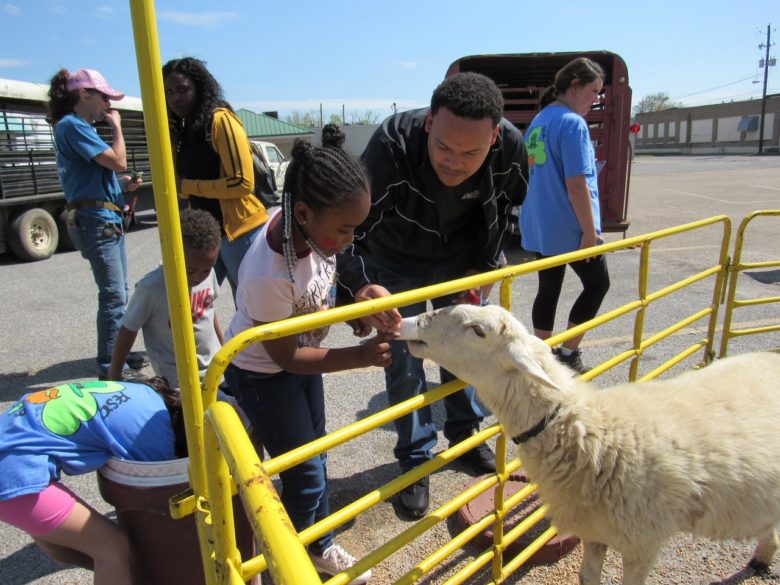
Schools advance in Science competitions
Sun shines on Abbey Youth Fest
By Abbey Schuhmann
COVINGTON, Louisiana – On Saturday, March 23, more than 200 youth and adults from around the Diocese of Jackson loaded four charter buses and made their way to St. Joseph Abbey and Seminary College for the 2019 Abbey Youth Festival (AYF). Additional parishes made trips on their own to the festival as well; the diocese was well represented with more than 300 youth and adult participants attending the one-day conference in south Louisiana.
After four straight years of rain, mud and even catastrophic flooding in 2016 which cancelled the entire event, the weather was perfect and the skies were blue; it was a sunny, 70 degrees on the AYF field. The theme for the day was “Restored – Let Your Heart Be Filled.” The seminarians at St. Joseph Seminary College play a vital role in the production of AYF including the diocese’s own, Tristan Stovall of Philadelphia Holy Cross. “The Abbey Youth Festival is an apostolic service of Saint Joseph Abbey and Seminary College.” The mission statement for Abbey Fest declares that “it is designed to provide young people with an opportunity to experience a day of prayer and faith formation with an exposure to the Benedictine traditions. Its focus is evangelization and vocational discernment by means of liturgy, prayer, worship, music and education appropriate for Catholic young people.” The festival has grown over the years; this year’s festival brought in more than 2,500 young people from Louisiana, Texas, Alabama, Florida, Georgia and Tennessee. The festival boasts a packed schedule that includes faith-filled music, prayer, catechesis, fellowship and fun.
A new addition to the program this year was a talent show featuring youth versus seminarian acts including a panel of judges. Richard Smallwood of Flowood St. Paul and Anna Trautman and Hannah Hoang of Amory St. Helen were the selected youth acts to perform on stage. Trautman and Hoang performed a beautiful rendition of Lauren Daigle’s song “You Say” while Smallwood entertained the crowd with a reenactment of the classic campaign speech dance from the movie Napoleon Dynamite.
Other acts from seminarians included fire breathing and a dance-off battle. Smallwood took home the grand prize for his performance. The program featured inspirational keynote presentations from Father Sidney Speaks and Sister Josephine Garrett. Danielle Nicole presented the breakout session for the women while Dom Quaglia led the session for men. The Sarah Kroger Band entertained the crowd with an evening concert and led worship music throughout the day.
All participants had the opportunity to visit different vendor booths including religious orders and communities from all around the country. Many teens and adults also take advantage of the sacrament of Reconciliation. Archbishop Gregory Aymond of the Archdiocese of New Orleans celebrated the Mass with Bishop Kopacz for the second year in a row. Bishop Kopacz has made several trips to Abbey Youth Fest since his installation as bishop for the diocese. The day concluded with candlelight adoration and praise and worship.
AYF is an excellent opportunity for teens to see the bigger church and enjoy fellowship with other young Catholics from all across the South. This was the ninth year for the diocese to sponsor a trip to the Abbey Youth Festival.
Make plans to participate in the 2020 event scheduled for Saturday, March 21. For more information visit www.abbeyyouthfest.com, on Facebook at “Abbey Youth Fest” or contact Abbey Schuhmann in the Office of Youth Ministry – 601-949-6934 or Abbey.Schuhmann@jacksondiocese.org
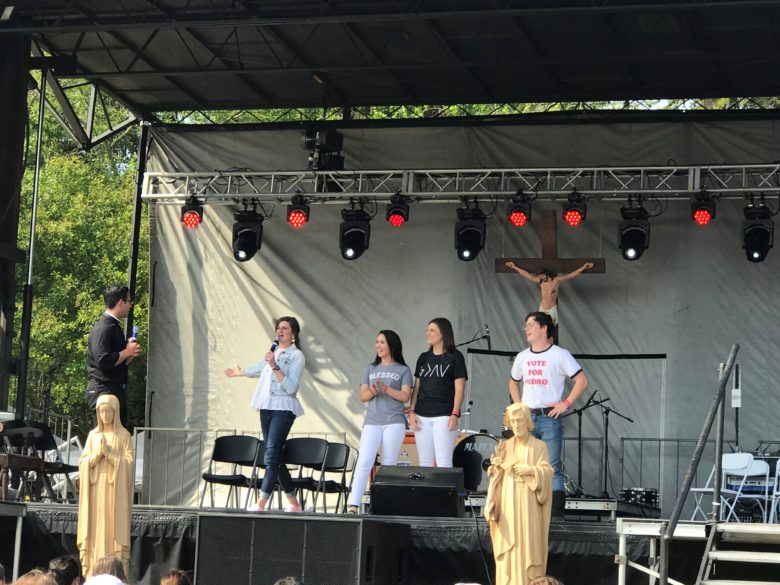
Two finalists in the talent show were from the Diocese of Jackson including Anna Trautman and Hannah Hoang of Amory St. Helen, center, and Richard Smallwood from Flowood St. Paul, who won the competition. (Photo by Abbey Schuhmann) 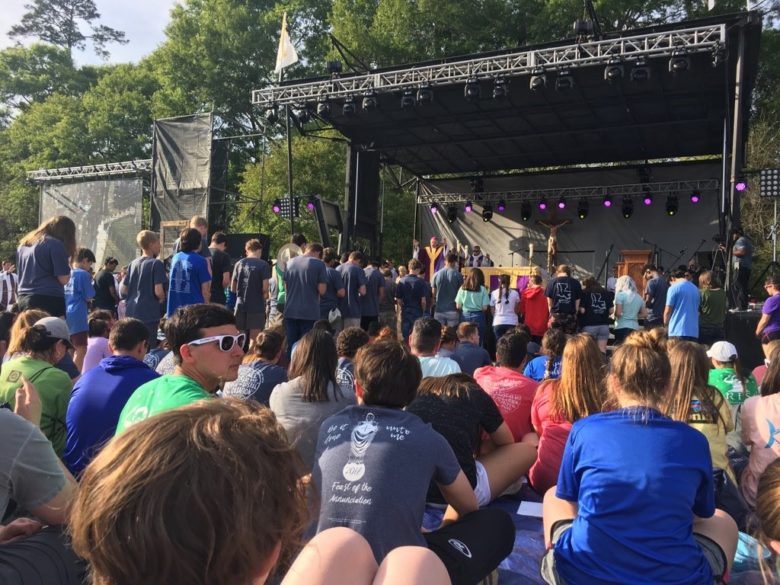
Young people are invited to consider a religious vocation. (Photo by Patti Greene) 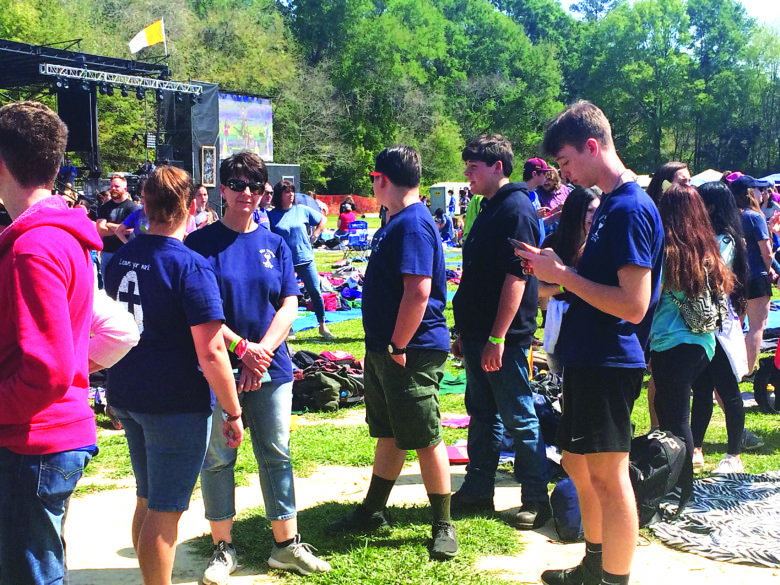
Hunter Yentzen, center, with the youth group from Clinton Holy Savior Parish at Abbey Youth Fest.
Grenada Parish celebrates St. Joseph’s Day
GRENADA – Members of St. Peter Parish sing during the blessing of their St. Joseph Altar on Tuesday, March 19. The parish celebrated the feast of St. Joseph in true Italian style with a traditional altar loaded with bread and other goodies. Pastor Father Arokia Savio concelebrated Mass at 8 a.m. with Father Manohar Thanugundla of Brookhaven St. Francis. Those gathered then went to the parish hall to pray a rosary, bless their St. Joseph Altar and enjoy an Italian Meal. (Photo by Michael Liberto)
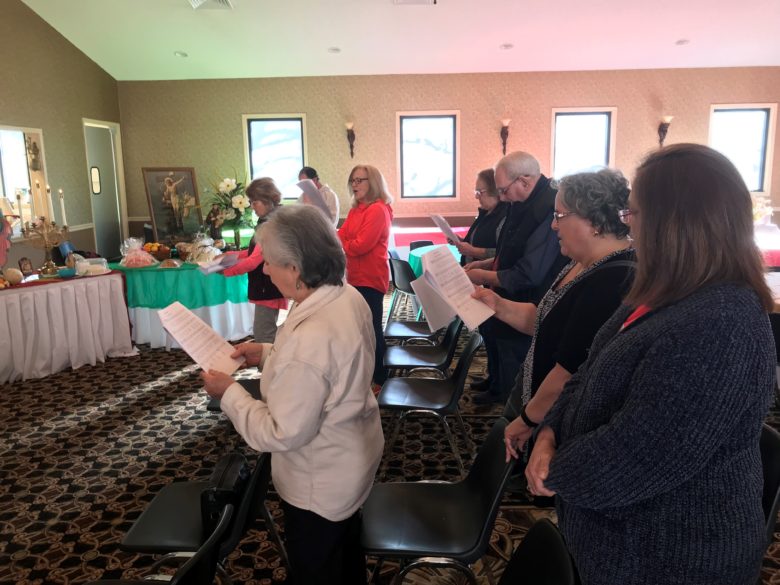
Bowden becomes ordination candidate
PEARL – Seminarian Andrew Bowden, stands before Bishop Joseph Kopacz during the Rite of Candidacy at St. Jude Parish on Sunday, March 24. Bowden presented himself to the bishop as his next step on the journey toward his ordination next year. (Photos by Tereza Ma)
Reconciling love of God breaks through on Holy Week
By Bishop Joseph Kopacz
As Holy Week commences, we relive the biblical divine drama each year when the light shines in the darkness and the passion, death and resurrection of the Son of God scatters the darkness of sin and death and all its shadows. The Gospel of Luke set the stage on the First Sunday of Lent when the tempter, the enemy, waged an all-out campaign against God’s beloved, he whose identity was revealed at his Baptism, who endured hunger and solitude for 40 days, and who confirmed his full humanity and divinity in the face of potentially ruinous temptations.

In that moment, Saint Luke alerts us to remain vigilant, because although vanquished, the tempter lurks and awaits another opportunity. The enemy returns in the encounter we know as the Agony in the Garden of Gethsemane when the full force of the impending crucifixion assails Jesus. Fully human and fully divine, an inexhaustible mystery, Jesus of Nazareth sweats drops of blood and is tempted to seek another way, but in the fullness of his communion with the Father, he accepted the divine will.
From the blood splattered ground Jesus arose to walk purposely into the passion which he foretold on several occasions during his pubic ministry. He moved with the same resolve, impelled by the same Holy Spirit who drove him into his public ministry following the desert combat. For Catholics and for many Christians the divine action of salvation is compressed into the proclamation of the passion on Palm Sunday weekend. Most do not partake of the Triduum during Holy Week, but the faith-filled commemoration of the passion and death of the Lord prepares the faithful to celebrate his resurrection on Easter, and to renew the promises of Baptism.
This weekend ahead, when the passion narrative from Luke’s Gospel takes root and remains alive in our hearts and minds, and when the palm is prominent in the home as a blessed reminder of whom we adore, then Jesus Christ will be alive wherever we are.
The world needs to hear the compassionate and reconciling words of the Lord from the Cross from Luke’s passion account, poured out with his precious blood. To those who crucified Jesus we hear, “Father, forgive them for they know not what they do.” Likewise, with the repentant thief we are remembered by God, now and forever. “From this day forward, you are with me in paradise.” At the moment of death, Jesus seals his sacrifice on the Cross with these words to his beloved Father. “Into your hands I commend my spirit.” Ultimate faith and hope in eternal life and renewal in forgiveness, are the way forward in Holy Week and the royal road for a lifetime.
In the Church and in society the Lord wants to pour out his reconciling love upon, the violent, the hardened of heart, the repentant, and those approaching death. This eternal love of God is evident during the passion and from the Cross, and in all of the resurrection appearances. “In the tender compassion of our God the dawn from on high breaks upon to shine on those who dwell in darkness and the shadow of death and to guide our feet in the way of peace.” (Luke 1,78-79)
It is only the crucified love of the Lord that can scatter the darkness in the Church from the scandal of sexual abuse, the lust for religious power, the suffering of the victims, and the brokenness in families and Church communities. Just like the apostles huddled in fear in the Gospel of John in the vacuum between the crucifixion and resurrection, the Lord appears to us to show us his wounds, to forgive our sins, to grant us peace, to breathe into us the Holy Spirit of God, and to renew us in our mission to make disciples of all the nations.
Many are scattered in our time because of the scandals, as were the apostles of the Lord after the scandal of the Cross, mired in fear, anger, doubt, shame and grief, but the crucified and risen Lord is with us always to rebuild and restore his Church for her sacred mission so that even the gates of hell will not prevail before the divine presence. The seeds of healing and hope are already growing and flowering, and the oils of salvation are will be flowing at the Easter Vigil and throughout the year. May the precious blood and life-giving words of the Lord from the Cross, followed by his Holy Spirit, raise us up, grant us peace, and make us busy about the Lord’s work in our families, communities of faith, and in our society.
“Hosanna in the Highest! Blessed is the one who comes in the name of the Lord, Hosanna in the Highest!”

